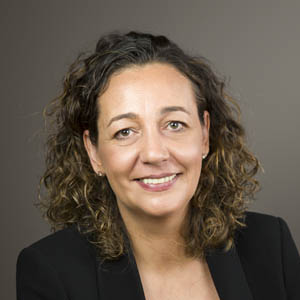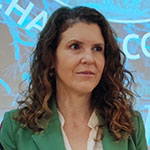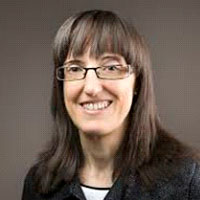Master´s Degree in Management and Digital Transformation of Educational Centers

Lead digital change in your center by driving digital innovation and its development
The Master's Degree in Management and Digital Transformation of Educational Centers, supposes an academic specialization in relation to the transformation of educational centers, and using technologies as the backbone.
It is not just about integrating technology into the classroom. When we talk about digital transformation in the educational field, we are referring to a more radical change in institutions, which affects all aspects and processes of an educational organization: educational processes, of course, but also structural, organizational, management, planning, etc.
This degree provides a global understanding of the digital phenomenon at an institutional level, taking into account all its dimensions: technological, informational, organizational, personal, educational. Hence, the master's includes technical subjects, but also innovation management, organizational culture, people management and leadership.
Read +In this degree, the importance of the role of the management of educational centers is taken into account, since the entire process of digital transformation depends on them. For this reason, it intends to train directors of educational centers capable of transforming their school into a highly digitized institution. They will be in charge of leading the change so that the educational experience is more complete, adapted and personalized to the student.
Graduates of this Master's will be able to promote the technological updating and training of teachers, renew the management and communication processes of the center and learn about the digital tools available and their adaptation to the educational institution. In addition, they will be in charge of leading this transformation and instilling a digital adaptation mentality throughout the center.
Read lessLet’s Talk About Education
First chapter of the video podcast specialized in Education where the research processes and their application in neuroscience and the educational sector are analyzed.
Student profile: Those interested in studying and obtaining the Master's Degree in Digital Management and Transformation of Educational Centers from Nebrija University must comply with the requirements imposed by current legislation, the admission profile being that of a university graduate or equivalent (graduates) in Teaching, Pedagogy, Psychology or Psychological Teaching. Also, given the multidisciplinary nature of the program, students who have completed the Master's Degree in Teacher Training for Compulsory Secondary Education and Baccalaureate, VT and Language Teaching or the Teaching Aptitude Certificate (CAP).
Official Degree:Master´s Degree in Management and Digital Transformation of Educational Centers
Center responsible:School of Language and Education
Branch of knowledge: Social and Legal Sciences
Places offered: 300
Total Credits:60 credits.
. Minimum 12 ECTS credits and maximum 60 ECTS credits per enrollment and academic period
Academic year it was implemented: 2019/2020
Duration: 1 year, from October to June
Academic Regulations: General student’s regulations. Credit transfer and recognition. Regulation of student participation. Common procedures for carrying out the Final Research Project
University Services: [+info]
Internal Quality Assurance System System managers Incidents, Suggestions and Complaints Job placement report and assessment of training received
A future-oriented program with an innovative and cutting-edge curriculum
Curriculum
All our degrees and curricula have been prepared in accordance with the new guidelines set by current legislation, having already been verified by the National Agency for Quality Assessment.
The student must take 60 credits
First Semester 30 ECTS
From October to January, both included- 4 ECTS | Modernization and Knowledge Society
- 4 ECTS | Educational Transformation in Centers
- 6 ECTS | Educational Leadership in the Digital Context
- 4 ECTS | Methodologies for Change
- 4 ECTS | Teacher training and New Digital Profiles
- 4 ECTS | Evaluation and Quality in Educational Centers
- 4 ECTS | Project Management and Technology Planning
Second Semester 30 ECTS
From January to June, both included- 6 ECTS | Collaborative Platforms and Content Digitalization Tools
- 6 ECTS | Learning Analytics
- 6 ECTS | Social Networks and Digital Communication
- 6 ECTS | Interships
- 6 ECTS | Final Research Project
Information if these subjects
Professors
| Profesores Professors | Porcentaje de Doctores Percentage of PhD holders |
| 57 | 84,21% |
 Nuria Camuñas Sánchez-Paulete
Vicedecana de la Facultad de Lenguas y Educación
Nuria Camuñas Sánchez-Paulete
Vicedecana de la Facultad de Lenguas y EducaciónDirectora del Departamento de Educación Director of the Department of Education Doctora en Psicología por la UCM. Máster en Intervención en la Ansiedad y el Estrés (UCM). Licenciada con grado en Psicología (UCM). Directora del Área de Educación de la Facultad de la Artes y las Letras. Es profesora de la Facultad de Lenguas y Educación en grado y postgrado. Docente de distintos cursos de formación y máster, sobre ansiedad, emociones y educación, estrés, modificación de conducta y dificultades del aprendizaje. Autora de distintas publicaciones y presentaciones en congresos relacionadas con procesos cognitivos, emoción y educación, prevención y control del estrés, etc. Miembro del grupo de investigación en Formación del Profesorado y Educación (IFPE). Otras líneas de investigación: Cognición, Emoción, Salud y Educación.
ncamunas@nebrija.es
 Patricia González Collado
Directora del Máster Universitario en Dirección y Transformación Digital de Centros Educativos
Director of the Master's Degree in Digital Management and Transformation of Educational Centers
Doctora en Educación por la Universidad Autónoma de Madrid con mención Cum Laude. Graduada en Pedagogía por la Universidad de Oviedo y Máster en Calidad y mejora de la Educación por la Universidad Autónoma de Madrid. Cuenta con una amplia experiencia en el ámbito de la formación a distancia, tutorizando proyectos e-learning y gestionando plataformas virtuales aplicadas al proceso de enseñanza-aprendizaje. Una de sus líneas de investigación está centrada en la Pedagogía de la Muerte en el contexto educativo y hospitalario. Es investigadora en proyectos I+D+I como “Innovación e Inclusión de la Muerte en Educación” y “Pedagogía Pandemia y Mejora de la Educación” (Ministerio de Ciencia e Innovación). Co-autora de los libros “La práctica de la pedagogía de la muerte: Guía Educativa y Plan Lector”. Ha presentado diversas comunicaciones y ponencias en Congresos Educativos. Actualmente, es directora del Máster en Dirección y Transformación Digital de Centros Educativos y del Máster en Gobernanza Educativa en la Universidad Antonio de Nebrija. También es docente en el Máster Universitario en Formación del Profesorado de ESO y Bachillerato, FP y Enseñanza de Idiomas (Universidad Antonio de Nebrija).
Patricia González Collado
Directora del Máster Universitario en Dirección y Transformación Digital de Centros Educativos
Director of the Master's Degree in Digital Management and Transformation of Educational Centers
Doctora en Educación por la Universidad Autónoma de Madrid con mención Cum Laude. Graduada en Pedagogía por la Universidad de Oviedo y Máster en Calidad y mejora de la Educación por la Universidad Autónoma de Madrid. Cuenta con una amplia experiencia en el ámbito de la formación a distancia, tutorizando proyectos e-learning y gestionando plataformas virtuales aplicadas al proceso de enseñanza-aprendizaje. Una de sus líneas de investigación está centrada en la Pedagogía de la Muerte en el contexto educativo y hospitalario. Es investigadora en proyectos I+D+I como “Innovación e Inclusión de la Muerte en Educación” y “Pedagogía Pandemia y Mejora de la Educación” (Ministerio de Ciencia e Innovación). Co-autora de los libros “La práctica de la pedagogía de la muerte: Guía Educativa y Plan Lector”. Ha presentado diversas comunicaciones y ponencias en Congresos Educativos. Actualmente, es directora del Máster en Dirección y Transformación Digital de Centros Educativos y del Máster en Gobernanza Educativa en la Universidad Antonio de Nebrija. También es docente en el Máster Universitario en Formación del Profesorado de ESO y Bachillerato, FP y Enseñanza de Idiomas (Universidad Antonio de Nebrija).
pgonzalezco@nebrija.es
 Camino Ruiz Rodríguez
Coordinadora del Máster Universitario en Dirección y Transformación Digital de Centros Educativos
Coordinator of the Master's Degree in Digital Management and Transformation of Educational Centers
Titulada en Psicopedagogía por la Universidad de Valladolid, con Magisterio en Educación Especial y Magisterio en Educación Primaria por la Universidad de Burgos. Especializada en Gestión de Recursos Humanos y Gestión Empresarial por la Universidad de Alcalá de Henares y como profesora de religión católica por el instituto superior de ciencias religiosas "San Jerónimo" vinculado a la facultad de Teología del Norte de España.
Profesora universitaria en el Grado de Educación Infantil, Grado de Educación Primaria, Máster en Psicopedagogía, Máster en Dirección y Gestión para la Calidad de Centros Educativos, Máster en Enseñanza del Español para Extranjeros y Máster en Educación Secundaria, en distintas universidades de ámbito nacional.
Es directora de TFM y TFG y participa como miembro de tribunal de evaluación de proyectos de investigación fin de Máster y fin de Grado.
Camino Ruiz Rodríguez
Coordinadora del Máster Universitario en Dirección y Transformación Digital de Centros Educativos
Coordinator of the Master's Degree in Digital Management and Transformation of Educational Centers
Titulada en Psicopedagogía por la Universidad de Valladolid, con Magisterio en Educación Especial y Magisterio en Educación Primaria por la Universidad de Burgos. Especializada en Gestión de Recursos Humanos y Gestión Empresarial por la Universidad de Alcalá de Henares y como profesora de religión católica por el instituto superior de ciencias religiosas "San Jerónimo" vinculado a la facultad de Teología del Norte de España.
Profesora universitaria en el Grado de Educación Infantil, Grado de Educación Primaria, Máster en Psicopedagogía, Máster en Dirección y Gestión para la Calidad de Centros Educativos, Máster en Enseñanza del Español para Extranjeros y Máster en Educación Secundaria, en distintas universidades de ámbito nacional.
Es directora de TFM y TFG y participa como miembro de tribunal de evaluación de proyectos de investigación fin de Máster y fin de Grado.
cruizro@nebrija.es
 Clara Díaz-Cordovés Verbo
Coordinadora de alumnos del Máster Universitario en Dirección y Transformación Digital de Centros Educativos
Coordinator of students of the University Master's Degree in Management and Digital Transformation of Educational Centers
Titulada en Grado de maestro en educación primaria con la especialidad de Lengua, Lectura y Multiculturalidad, interesada en factores que afectan de forma directa en el alumnado, realiza cursos de ampliación profesional relacionados con acoso escolar, prevención del acoso escolar. Interesada de forma especial en TDAH, realiza trabajos voluntarios para con éste grupo.
Titulada en Psicomotricidad Infantil y con especial interés en la atención al alumnado con discapacidad sensorial. Titulada en Grado Superior de Lengua de Signos-Guía Intérprete.
Máster Universitario en Enseñanza del español para Extranjeros, con experiencia docente en la materia en centro especialista de Enseñanza del Español en Irlanda.
Con intereses artísticos, violonchelista con experiencia de 18 años y pianista desde hace 14.
Profesora de prácticas del Máster Universitario en Enseñanza de Español para Extranjeros. Universidad Francisco de Vitoria y gestora de prácticas.
Profesora de prácticas del Máster Universitario en Competencias Docentes Avanzadas Universidad Camilo José Cela.
Profesora de prácticas del Grado de Primaria con la Universidad Antonio de Nebrija.
Personal especialista en orientación en centro de Formación Docente.
Clara Díaz-Cordovés Verbo
Coordinadora de alumnos del Máster Universitario en Dirección y Transformación Digital de Centros Educativos
Coordinator of students of the University Master's Degree in Management and Digital Transformation of Educational Centers
Titulada en Grado de maestro en educación primaria con la especialidad de Lengua, Lectura y Multiculturalidad, interesada en factores que afectan de forma directa en el alumnado, realiza cursos de ampliación profesional relacionados con acoso escolar, prevención del acoso escolar. Interesada de forma especial en TDAH, realiza trabajos voluntarios para con éste grupo.
Titulada en Psicomotricidad Infantil y con especial interés en la atención al alumnado con discapacidad sensorial. Titulada en Grado Superior de Lengua de Signos-Guía Intérprete.
Máster Universitario en Enseñanza del español para Extranjeros, con experiencia docente en la materia en centro especialista de Enseñanza del Español en Irlanda.
Con intereses artísticos, violonchelista con experiencia de 18 años y pianista desde hace 14.
Profesora de prácticas del Máster Universitario en Enseñanza de Español para Extranjeros. Universidad Francisco de Vitoria y gestora de prácticas.
Profesora de prácticas del Máster Universitario en Competencias Docentes Avanzadas Universidad Camilo José Cela.
Profesora de prácticas del Grado de Primaria con la Universidad Antonio de Nebrija.
Personal especialista en orientación en centro de Formación Docente.
cdiazcordoves@nebrija.es
 Lorena Aguilar Zapata
Profesora
Professor
Profesora en el Máster Universitario en Enseñanza bilingüe y Máster en Enseñanza de Español para Extranjeros de la Universidad Francisco de Vitoria. Diplomada en Magisterio de Educación Primaria por la Universidad Complutense de Madrid y Grado en Educación Primaria con Mención en Lengua Extranjera. Imparte docencia en el Máster en Enseñanza Bilingüe, Máster en Educación Secundaria, Máster de Tecnología Aplicada a la práctica docente y Máster en Competencias Avanzadas en universidad a nivel Nacional.
Lorena Aguilar Zapata
Profesora
Professor
Profesora en el Máster Universitario en Enseñanza bilingüe y Máster en Enseñanza de Español para Extranjeros de la Universidad Francisco de Vitoria. Diplomada en Magisterio de Educación Primaria por la Universidad Complutense de Madrid y Grado en Educación Primaria con Mención en Lengua Extranjera. Imparte docencia en el Máster en Enseñanza Bilingüe, Máster en Educación Secundaria, Máster de Tecnología Aplicada a la práctica docente y Máster en Competencias Avanzadas en universidad a nivel Nacional.
 Alicia Alvarado Escudero
Profesora
Professor
Doctora en Historia de América por la Universidad Pablo de Olavide, estudios de postgrado en la Universidad Complutense de Madrid con el Diploma de Estudios Avanzados y Curso de Adaptación Pedagógica. Imparte docencia en la Universidad Camilo José Cela, Antonio de Nebrija y Unir. Ha impartido docencia en cursos de formación de la Comunidad de Madrid sobre herramientas digitales aplicadas a la educación, gamificación y TICs aplicadas a la innovación educativa, y diferentes asignaturas pertenecientes al área de humanidades en el IES Iturralde y Colegio Gredos San Diego. Ha llevado a cabo una investigación científica internacional en la Pontificia Universidad Católica del Perú. Participa y ha participado en numerosos congresos nacionales e internacionales: como ponente y miembro del comité Científico y Organizador. Ha publicado artículos científicos tanto en revistas nacionales como internacionales.
Alicia Alvarado Escudero
Profesora
Professor
Doctora en Historia de América por la Universidad Pablo de Olavide, estudios de postgrado en la Universidad Complutense de Madrid con el Diploma de Estudios Avanzados y Curso de Adaptación Pedagógica. Imparte docencia en la Universidad Camilo José Cela, Antonio de Nebrija y Unir. Ha impartido docencia en cursos de formación de la Comunidad de Madrid sobre herramientas digitales aplicadas a la educación, gamificación y TICs aplicadas a la innovación educativa, y diferentes asignaturas pertenecientes al área de humanidades en el IES Iturralde y Colegio Gredos San Diego. Ha llevado a cabo una investigación científica internacional en la Pontificia Universidad Católica del Perú. Participa y ha participado en numerosos congresos nacionales e internacionales: como ponente y miembro del comité Científico y Organizador. Ha publicado artículos científicos tanto en revistas nacionales como internacionales.
aalvarado@nebrija.es
 Tania Ariza Castilla
Tutora TFM
Final Master's Work Tutor
Licenciada en Pedagogía, Máster en Diseños de Investigación y Aplicaciones en Psicología y Salud, y Doctora en Psicología por la Universidad de Granada. Además, tiene el título de Experto Universitario en Aprendizaje y Enseñanza Universitaria Online. Ha impartido docencia en el departamento de Psicología evolutiva y de la educación y en el de Metodología de las Ciencias del Comportamiento de la Universidad de Granada, así como en el departamento de Psicología de la educación y psicobiología de la Universidad Internacional de La Rioja. También, pertenece al grupo de investigación “Procesamiento de la información y toma de decisiones” de la Universidad de Granada. Sus publicaciones científicas se centran en el estudio bibliométrico de revistas relacionadas con la educación, la evaluación de la educación superior y el síndrome de burnout en colectivos en riesgo de padecerlo. Ha sido miembro del comité científico y organizador de congresos internacionales sobre Educación Superior y es revisora de artículos de revistas de psicología y educación.
Tania Ariza Castilla
Tutora TFM
Final Master's Work Tutor
Licenciada en Pedagogía, Máster en Diseños de Investigación y Aplicaciones en Psicología y Salud, y Doctora en Psicología por la Universidad de Granada. Además, tiene el título de Experto Universitario en Aprendizaje y Enseñanza Universitaria Online. Ha impartido docencia en el departamento de Psicología evolutiva y de la educación y en el de Metodología de las Ciencias del Comportamiento de la Universidad de Granada, así como en el departamento de Psicología de la educación y psicobiología de la Universidad Internacional de La Rioja. También, pertenece al grupo de investigación “Procesamiento de la información y toma de decisiones” de la Universidad de Granada. Sus publicaciones científicas se centran en el estudio bibliométrico de revistas relacionadas con la educación, la evaluación de la educación superior y el síndrome de burnout en colectivos en riesgo de padecerlo. Ha sido miembro del comité científico y organizador de congresos internacionales sobre Educación Superior y es revisora de artículos de revistas de psicología y educación.
tariza@nebrija.es
 Gerardo Arriaza Fernández
Tutor TFM
Final Master's Project Tutor
Doctor en Filosofía y Letras, Licenciado en Historia por la Universidad de Granada y Graduado en Educación Primaria con Mención TIC en Educación por la Universidad Internacional de Valencia. Ha cursado los másteres en Claves del Mundo Contemporáneo (UGR); Formación del Profesorado de Educación Secundaria Obligatoria, Bachillerato, Formación Profesional y Enseñanza de Idiomas (VIU); Educación Familiar (UIC) y Experto Universitario en Liderazgo y Competencias Directivas (Gestiónitas); actualmente está realizando el curso DAIP de Experto en Educación Familiar. Imparte docencia como profesor de primaria y secundaria de Lengua Castellana y de Cultura Digital en un colegio privado y en distintas universidades. Ha participado en proyectos de desarrollo del iPad en educación, Google for Education y en la implementación de las nuevas tecnologías en la docencia. Trabaja la pedagogía del aprendizaje-servicio y la gamificación dentro de entornos digitales.
Gerardo Arriaza Fernández
Tutor TFM
Final Master's Project Tutor
Doctor en Filosofía y Letras, Licenciado en Historia por la Universidad de Granada y Graduado en Educación Primaria con Mención TIC en Educación por la Universidad Internacional de Valencia. Ha cursado los másteres en Claves del Mundo Contemporáneo (UGR); Formación del Profesorado de Educación Secundaria Obligatoria, Bachillerato, Formación Profesional y Enseñanza de Idiomas (VIU); Educación Familiar (UIC) y Experto Universitario en Liderazgo y Competencias Directivas (Gestiónitas); actualmente está realizando el curso DAIP de Experto en Educación Familiar. Imparte docencia como profesor de primaria y secundaria de Lengua Castellana y de Cultura Digital en un colegio privado y en distintas universidades. Ha participado en proyectos de desarrollo del iPad en educación, Google for Education y en la implementación de las nuevas tecnologías en la docencia. Trabaja la pedagogía del aprendizaje-servicio y la gamificación dentro de entornos digitales.
garriaza@nebrija.es
 José Manuel Blanco Gómez
Profesor
Professor
Doctor por la Universidad Rey Juan Carlos (2017) y Master en PRL, Postgrado en RR.HH por la Universidad de Barcelona y EAE (2012); Postgrado En Planificación de Servicios Sociales y Postgrado en Animación Sociocultural, ambos por la Universidad da Coruña (2003). Postgrado en Integración Sociolaboral de Personas Discapacitadas por la Universidad de Córdoba (1999). También tiene la licenciatura de Psicopedagogía por la Universidad de Jaén (1995) y la diplomatura en Profesorado de EGB por la Universidad de Córdoba (1993). Su docencia se centra en la ergonomía, psicosociología y medicina del trabajo. También en la metodología de la integración social; en la animación sociocultural y en la orientación laboral. Tanto en el ámbito universitario, como de la formación profesional de grado superior y la formación profesional ocupacional. Sus intereses de investigación cubren desde los factores psicosociales relacionados con la PRL en personas con discapacidad; la recuperación y reinserción sociolaboral de personas con daño cerebral sobrevenido. Así como la influencia de los apoyos de la familia, compañeros/as, supervisores/as y organización en la mediación y moderación entre los factores psicosociales y la satisfacción laboral y vital.
José Manuel Blanco Gómez
Profesor
Professor
Doctor por la Universidad Rey Juan Carlos (2017) y Master en PRL, Postgrado en RR.HH por la Universidad de Barcelona y EAE (2012); Postgrado En Planificación de Servicios Sociales y Postgrado en Animación Sociocultural, ambos por la Universidad da Coruña (2003). Postgrado en Integración Sociolaboral de Personas Discapacitadas por la Universidad de Córdoba (1999). También tiene la licenciatura de Psicopedagogía por la Universidad de Jaén (1995) y la diplomatura en Profesorado de EGB por la Universidad de Córdoba (1993). Su docencia se centra en la ergonomía, psicosociología y medicina del trabajo. También en la metodología de la integración social; en la animación sociocultural y en la orientación laboral. Tanto en el ámbito universitario, como de la formación profesional de grado superior y la formación profesional ocupacional. Sus intereses de investigación cubren desde los factores psicosociales relacionados con la PRL en personas con discapacidad; la recuperación y reinserción sociolaboral de personas con daño cerebral sobrevenido. Así como la influencia de los apoyos de la familia, compañeros/as, supervisores/as y organización en la mediación y moderación entre los factores psicosociales y la satisfacción laboral y vital.
jblanco@nebrija.es
 Lidia Cabello González
Profesora
Professor
Licenciada en Pedagogía. Suficiencia Investigadora en Teoría de la Educación y Pedagogía Social. Técnico Superior en Prevención de Riesgos Laborales. Máster en Recursos Humanos. Profesora Colaborada en la Facultad de Pedagogía de la Universidad de Sevilla durante los años 1997 hasta el 2001. Directora de TFM en materia de PRL en la Facultad de Ingeniería de la UNIR. Experiencia como Técnico de Orientación Laboral y Técnico de Formación en varias empresas. Autora del libro "La Formación Continua en la Empresa". Participación en diversas Investigaciones relacionadas con el ámbito educativo. Estoy especializada en nuevas tecnologías aplicadas a la docencia, como tutora de cursos on line, entre otros. En lo que respecta a mi actividad investigadora, he publicado diversos artículos en revistas de divulgación y científicas.
Lidia Cabello González
Profesora
Professor
Licenciada en Pedagogía. Suficiencia Investigadora en Teoría de la Educación y Pedagogía Social. Técnico Superior en Prevención de Riesgos Laborales. Máster en Recursos Humanos. Profesora Colaborada en la Facultad de Pedagogía de la Universidad de Sevilla durante los años 1997 hasta el 2001. Directora de TFM en materia de PRL en la Facultad de Ingeniería de la UNIR. Experiencia como Técnico de Orientación Laboral y Técnico de Formación en varias empresas. Autora del libro "La Formación Continua en la Empresa". Participación en diversas Investigaciones relacionadas con el ámbito educativo. Estoy especializada en nuevas tecnologías aplicadas a la docencia, como tutora de cursos on line, entre otros. En lo que respecta a mi actividad investigadora, he publicado diversos artículos en revistas de divulgación y científicas.
lcabello@nebrija.es
 Elsa del Campo Ramírez
Tutora TFM
Final Master's Work Tutor
Doctora suma cum laude en Estudios Literarios por Universidad Complutense de Madrid. Licenciada en Filología Inglesa por la Universidad Complutense de Madrid. Profesionalmente ha ejercido la docencia en diversas universidades, y cuenta con una amplia experiencia profesional en el campo de la enseñanza del inglés como segunda lengua en diversas empresas y proyectos educativos para la formación del profesorado. Ha participado en múltiples congresos de notoria repercusión tanto a nivel nacional como internacional. Posee diversas publicaciones en revistas científicas.
Elsa del Campo Ramírez
Tutora TFM
Final Master's Work Tutor
Doctora suma cum laude en Estudios Literarios por Universidad Complutense de Madrid. Licenciada en Filología Inglesa por la Universidad Complutense de Madrid. Profesionalmente ha ejercido la docencia en diversas universidades, y cuenta con una amplia experiencia profesional en el campo de la enseñanza del inglés como segunda lengua en diversas empresas y proyectos educativos para la formación del profesorado. Ha participado en múltiples congresos de notoria repercusión tanto a nivel nacional como internacional. Posee diversas publicaciones en revistas científicas.
ecampo@nebrija.es
 María Magdalena Castejón Ibáñez
Tutora TFM
Final Master's Work Tutor
Doctora en Educación, Licenciada en Bellas Artes, Máster en Educación y museos: patrimonio, identidad y mediación cultural, por la Universidad de Murcia. Especialista en Educación artística, cultura y ciudadanía por la UVA. Docente universitaria en áreas de artes y educación. Como investigadora ha publicado diferentes artículos y participado en congresos nacionales e internacionales, con experiencias vinculadas a la educación y la mediación sociocultural. De forma independiente ha gestionado y coordinado diversos proyectos en torno a la educación y la difusión cultural, colaborando con diferentes referentes a nivel nacional e internacional.
María Magdalena Castejón Ibáñez
Tutora TFM
Final Master's Work Tutor
Doctora en Educación, Licenciada en Bellas Artes, Máster en Educación y museos: patrimonio, identidad y mediación cultural, por la Universidad de Murcia. Especialista en Educación artística, cultura y ciudadanía por la UVA. Docente universitaria en áreas de artes y educación. Como investigadora ha publicado diferentes artículos y participado en congresos nacionales e internacionales, con experiencias vinculadas a la educación y la mediación sociocultural. De forma independiente ha gestionado y coordinado diversos proyectos en torno a la educación y la difusión cultural, colaborando con diferentes referentes a nivel nacional e internacional.
mcastejon@nebrija.es
 Silvia Castellanos Cano
Tutora TFM
Final Master's Project Tutor
Doctora en Psicología por la Universidad de Oviedo. Máster de Investigación en Psicología de Salud. Autora de diversos artículos sobre Personalidad Eficaz, Procesamiento Estratégico de la Información, elaboración de cuestionarios y aprendizaje multimedia. En cuanto a la trayectoria profesional ha impartido docencia en la Universidad de Psicología de Oviedo y la Universidad internacional de la Rioja. Ha participado en proyectos de investigación como “Asistencia y dirección en los procesos de gestión, planificación, investigación, y redacción de trabajos conducentes” en la Universidad de Oviedo. Autora de distintos artículos científicos, tanto a nivel nacional como internacional, centradas en los campos de la Personalidad Eficaz, el Procesamiento Estratégico de la Información y elaboración de herramientas asociadas al aprendizaje multimedia.
Silvia Castellanos Cano
Tutora TFM
Final Master's Project Tutor
Doctora en Psicología por la Universidad de Oviedo. Máster de Investigación en Psicología de Salud. Autora de diversos artículos sobre Personalidad Eficaz, Procesamiento Estratégico de la Información, elaboración de cuestionarios y aprendizaje multimedia. En cuanto a la trayectoria profesional ha impartido docencia en la Universidad de Psicología de Oviedo y la Universidad internacional de la Rioja. Ha participado en proyectos de investigación como “Asistencia y dirección en los procesos de gestión, planificación, investigación, y redacción de trabajos conducentes” en la Universidad de Oviedo. Autora de distintos artículos científicos, tanto a nivel nacional como internacional, centradas en los campos de la Personalidad Eficaz, el Procesamiento Estratégico de la Información y elaboración de herramientas asociadas al aprendizaje multimedia.
scastellanos@nebrija.es
 Marta Castillo Segura
Profesora
Professor
Actualmente, cursando los estudios de doctorado en investigación transdisciplinar en educación. Pedagoga y profesora universitaria en asignaturas relacionadas con el ámbito educativo y la intervención con personas con necesidades educativas especiales. Además, lidera un gabinete psicopedagógico. Ha publicado diversas comunicaciones e investigado sobre la aplicación de las TIC en el ámbito de la intervención educativa.
Marta Castillo Segura
Profesora
Professor
Actualmente, cursando los estudios de doctorado en investigación transdisciplinar en educación. Pedagoga y profesora universitaria en asignaturas relacionadas con el ámbito educativo y la intervención con personas con necesidades educativas especiales. Además, lidera un gabinete psicopedagógico. Ha publicado diversas comunicaciones e investigado sobre la aplicación de las TIC en el ámbito de la intervención educativa.
mcastill@nebrija.es
 Adela Encarnación Cortijo Cantos
Tutora TFM
Final Master's Work Tutor
Doctorada en Ciencias de la Educación, Licenciada en Psicopedagogía y Maestra especialista en Educación Física, por la Universidad de Granada. Ha finalizado varios másteres y estudios de posgrado tanto por la UGR como por la Universidad Antonio de Nebrija (Máster Universitario en Educación musical: una perspectiva multidisciplinar; Máster Propio en Nuevas perspectivas en el ámbito de la actividad física del S. XIX: la promoción de estilos de vida activos; Pedagogía Terapéutica…). Ha disfrutado de dos becas de investigación (una propia de la UGR y otra del ministerio) y colaborado en diversos proyectos de investigación del departamento de Didáctica de la Expresión Musical, Plástica y Corporal de la Facultad de Ciencias de la Educación y del Deporte de Melilla perteneciente a la Universidad de Granada. Además, posee un posgrado en formación e-learning y cursos en formación continua en e-teacher. Se encuentra desarrollando un proyecto de innovación relacionado con el desarrollo de manuales de estudios específicos en el ámbito universitario. Dispone de varias publicaciones en revistas de reconocido prestigio. Además de impartir docencia en la Universidad Antonio de Nebrija, tanto en grado como en máster.
Adela Encarnación Cortijo Cantos
Tutora TFM
Final Master's Work Tutor
Doctorada en Ciencias de la Educación, Licenciada en Psicopedagogía y Maestra especialista en Educación Física, por la Universidad de Granada. Ha finalizado varios másteres y estudios de posgrado tanto por la UGR como por la Universidad Antonio de Nebrija (Máster Universitario en Educación musical: una perspectiva multidisciplinar; Máster Propio en Nuevas perspectivas en el ámbito de la actividad física del S. XIX: la promoción de estilos de vida activos; Pedagogía Terapéutica…). Ha disfrutado de dos becas de investigación (una propia de la UGR y otra del ministerio) y colaborado en diversos proyectos de investigación del departamento de Didáctica de la Expresión Musical, Plástica y Corporal de la Facultad de Ciencias de la Educación y del Deporte de Melilla perteneciente a la Universidad de Granada. Además, posee un posgrado en formación e-learning y cursos en formación continua en e-teacher. Se encuentra desarrollando un proyecto de innovación relacionado con el desarrollo de manuales de estudios específicos en el ámbito universitario. Dispone de varias publicaciones en revistas de reconocido prestigio. Además de impartir docencia en la Universidad Antonio de Nebrija, tanto en grado como en máster.
acortijo@nebrija.es
 Euclides José Cova Fernández
Tutor TFM
Final Master's Work Tutor
Licenciado en Educación. Máster en Ciencias Humanas y Sociales mención Información y Comunicación, especialidad Ingeniería de Medios para la Educación, Universidad de Poitiers (Francia). Máster en Ciencias de la Educación, especialidad Tecnología Educativa, Universidad de Lisboa (Portugal). Máster en Estrategias y Tecnologías para la Función Docente en la Sociedad Multicultural, UNED (España). Diploma de Estudios Avanzados (DEA) del programa doctoral en Educación: “Perspectivas Históricas, Políticas, Curriculares y de Gestión”, Universidad de Córdoba (España). Ha impartido docencia en todos los niveles educativos. Prof. de Idiomas (ELE/L2, FLE, TEFL/TESOL, etc.). Examinador oficial acreditado por el Instituto Cervantes del Diploma de Español como Lengua Extranjera (DELE). Formación en Informática y postgrado en Estudios Europeos/Unión Europea. Estancias en instituciones europeas: Bélgica, Francia, Luxemburgo y Alemania. Autor de publicaciones y presentaciones en congresos nacionales e internacionales. Líneas de investigación: elearning, enseñanza y aprendizaje digital, informática educativa, inclusión digital, lingüística, relaciones internacionales, protección de datos, etc.
Euclides José Cova Fernández
Tutor TFM
Final Master's Work Tutor
Licenciado en Educación. Máster en Ciencias Humanas y Sociales mención Información y Comunicación, especialidad Ingeniería de Medios para la Educación, Universidad de Poitiers (Francia). Máster en Ciencias de la Educación, especialidad Tecnología Educativa, Universidad de Lisboa (Portugal). Máster en Estrategias y Tecnologías para la Función Docente en la Sociedad Multicultural, UNED (España). Diploma de Estudios Avanzados (DEA) del programa doctoral en Educación: “Perspectivas Históricas, Políticas, Curriculares y de Gestión”, Universidad de Córdoba (España). Ha impartido docencia en todos los niveles educativos. Prof. de Idiomas (ELE/L2, FLE, TEFL/TESOL, etc.). Examinador oficial acreditado por el Instituto Cervantes del Diploma de Español como Lengua Extranjera (DELE). Formación en Informática y postgrado en Estudios Europeos/Unión Europea. Estancias en instituciones europeas: Bélgica, Francia, Luxemburgo y Alemania. Autor de publicaciones y presentaciones en congresos nacionales e internacionales. Líneas de investigación: elearning, enseñanza y aprendizaje digital, informática educativa, inclusión digital, lingüística, relaciones internacionales, protección de datos, etc.
ecova@nebrija.es
 Jonathan Delgado Adámez
Tutora TFM
Final Master's Work Tutor
Doctor acreditado en Ciencias (Biología) por la Universidad de Extremadura. Premio Extraordinario de Doctorado. Estancia de investigación en el Centro de Apoio Tecnológico Agro-Alimentar (CATAA) de Castelo Branco (Portugal). Participación en numerosos proyectos regionales, nacionales e internacionales y en la producción de artículos científicos en revistar incluidas en JCR, así como en libros y de publicaciones docentes. Experiencia docente a nivel universitario y coordinando proyectos de investigación tecnológicos.
Jonathan Delgado Adámez
Tutora TFM
Final Master's Work Tutor
Doctor acreditado en Ciencias (Biología) por la Universidad de Extremadura. Premio Extraordinario de Doctorado. Estancia de investigación en el Centro de Apoio Tecnológico Agro-Alimentar (CATAA) de Castelo Branco (Portugal). Participación en numerosos proyectos regionales, nacionales e internacionales y en la producción de artículos científicos en revistar incluidas en JCR, así como en libros y de publicaciones docentes. Experiencia docente a nivel universitario y coordinando proyectos de investigación tecnológicos.
jdelgadoa@nebrija.es
 María del Mar Díaz Castela
Tutora TFM
Final Master's Work Tutor
Doctora Internacional por la Universidad de Jaén y Licenciada en Psicología por dicha Universidad. Ha impartiendo docencia en varias universidades públicas de ámbito nacional, como la Universidad de Jaén y la Universidad de Almería. Participa y ha participado en diferentes investigaciones en colaboración con equipos de investigación de varias universidades nacionales, con quienes comparte una red de trabajo para la elaboración de diferentes investigaciones y publicaciones en el ámbito de la infancia y adolescencia y la atención a la diversidad. Ha participado en numerosos congresos nacionales e internacionales como comunicante y miembro del Comité Científico y Organizador. Así como, es revisora en varias revistas científicas de prestigio nacionales e internacionales.
María del Mar Díaz Castela
Tutora TFM
Final Master's Work Tutor
Doctora Internacional por la Universidad de Jaén y Licenciada en Psicología por dicha Universidad. Ha impartiendo docencia en varias universidades públicas de ámbito nacional, como la Universidad de Jaén y la Universidad de Almería. Participa y ha participado en diferentes investigaciones en colaboración con equipos de investigación de varias universidades nacionales, con quienes comparte una red de trabajo para la elaboración de diferentes investigaciones y publicaciones en el ámbito de la infancia y adolescencia y la atención a la diversidad. Ha participado en numerosos congresos nacionales e internacionales como comunicante y miembro del Comité Científico y Organizador. Así como, es revisora en varias revistas científicas de prestigio nacionales e internacionales.
mdiaz@nebrija.es
 Fernando Díaz Manzano
Tutor TFM
Final Master's Work Tutor
Doctor en Ciencias por la Universidad de Castilla La Mancha con Máster en Biotecnología por la Universidad Autónoma de Madrid y Máster en Profesorado por la Universidad de Castilla La Mancha. Ha realizado un postgrado de especialización en Análisis y Tecnologías del Medio Ambiente. Ha impartido docencia desde 2018, en el Grado de Educación Primaria y Máster en Procesos Educativos en la Universidad de Antonio de Nebrija; y a alumnos de Secundaria y Bachillerato en Institutos de la Consejería de Educación de Castilla La Mancha; y, por último, desde 2019, a alumnos del Máster en Profesorado de la Universidad Internacional de La Rioja.
Fernando Díaz Manzano
Tutor TFM
Final Master's Work Tutor
Doctor en Ciencias por la Universidad de Castilla La Mancha con Máster en Biotecnología por la Universidad Autónoma de Madrid y Máster en Profesorado por la Universidad de Castilla La Mancha. Ha realizado un postgrado de especialización en Análisis y Tecnologías del Medio Ambiente. Ha impartido docencia desde 2018, en el Grado de Educación Primaria y Máster en Procesos Educativos en la Universidad de Antonio de Nebrija; y a alumnos de Secundaria y Bachillerato en Institutos de la Consejería de Educación de Castilla La Mancha; y, por último, desde 2019, a alumnos del Máster en Profesorado de la Universidad Internacional de La Rioja.
fdiazman@nebrija.es
 Javier Diz Casal
Profesor
Professor
Licenciado en Psicología, ha hecho un Máster en psicogerontología y psicogeriatría, un Máster en psicología clínica, psicopatología y psicoterapia (títulos propios), un Máster oficial en investigación psicosocioeducativa con adolescentes en contextos escolares y un Máster oficial universitario en formación del profesorado de educación secundaria obligatoria y bachillerato, formación profesional y enseñanzas de idiomas. Además, Javier se ha doctorado por la Universidad de de Vigo con una tesis en Antropología Social dentro del Programa de Doctorado en Gestión y Resolución de Conflictos. Menores, Familia y Justicia Terapéutica. Javier está acreditado como mediador. Ha trabajado como Personal Docente e Investigador (PDI) en varias universidades privadas en España, en donde ha impartido asignaturas en los Grados de Psicología, Criminología, Derecho y Ciencias de la Seguridad, además de Coordinar el Grado de Psicología en una de esas universidades. Así mismo, ha impartido clases presenciales en la UNED, en el Grado de Psicología. Ha formado parte del equipo coordinador de la primera colección de la Red Iberoamericana de Investigación en Imaginarios y Representaciones. Además, ha trabajado como Coordinador zonal del Centro de Desarrollo Rural O Viso para el Proyecto Biocuidados de COCEDER, financiado con fondos Next Generation de la UE e integrado en el Pan de Recuperación, Transformación y Resiliencia. Es PDI en la Universidad Alfonso X el Sabio y PDI en la Universidad de Nebrija.
Javier Diz Casal
Profesor
Professor
Licenciado en Psicología, ha hecho un Máster en psicogerontología y psicogeriatría, un Máster en psicología clínica, psicopatología y psicoterapia (títulos propios), un Máster oficial en investigación psicosocioeducativa con adolescentes en contextos escolares y un Máster oficial universitario en formación del profesorado de educación secundaria obligatoria y bachillerato, formación profesional y enseñanzas de idiomas. Además, Javier se ha doctorado por la Universidad de de Vigo con una tesis en Antropología Social dentro del Programa de Doctorado en Gestión y Resolución de Conflictos. Menores, Familia y Justicia Terapéutica. Javier está acreditado como mediador. Ha trabajado como Personal Docente e Investigador (PDI) en varias universidades privadas en España, en donde ha impartido asignaturas en los Grados de Psicología, Criminología, Derecho y Ciencias de la Seguridad, además de Coordinar el Grado de Psicología en una de esas universidades. Así mismo, ha impartido clases presenciales en la UNED, en el Grado de Psicología. Ha formado parte del equipo coordinador de la primera colección de la Red Iberoamericana de Investigación en Imaginarios y Representaciones. Además, ha trabajado como Coordinador zonal del Centro de Desarrollo Rural O Viso para el Proyecto Biocuidados de COCEDER, financiado con fondos Next Generation de la UE e integrado en el Pan de Recuperación, Transformación y Resiliencia. Es PDI en la Universidad Alfonso X el Sabio y PDI en la Universidad de Nebrija.
jdiz@nebrija.es
 Maitane Elorriaga Rubio
Profesora
Professor
Doctora en la Psicología de la toma de decisiones por la Universidad Danesa Copenhagen Business School. Allí ha creado e impartido varias asignaturas interdisciplinares en inglés de Psicología básica y aplicada, a nivel de grado y máster. Actualmente, ejerce como docente en Universidad Nebrija. También ha impartido docencia en el máster de Educación Bilingüe de la Universidad Francisco de Vitoria, así como en la Universidad Camilo Jose Cela, en los másteres de Competencias Docentes Avanzadas y Orientación e Intervención Psicopedagógica. En cuanto a su actividad investigadora, cabe destacar que fue galardonada con el Premio Fonnesbech al Doctorado en 2017, y sus investigaciones han sido publicadas así como presentadas en congresos internacionales.
Maitane Elorriaga Rubio
Profesora
Professor
Doctora en la Psicología de la toma de decisiones por la Universidad Danesa Copenhagen Business School. Allí ha creado e impartido varias asignaturas interdisciplinares en inglés de Psicología básica y aplicada, a nivel de grado y máster. Actualmente, ejerce como docente en Universidad Nebrija. También ha impartido docencia en el máster de Educación Bilingüe de la Universidad Francisco de Vitoria, así como en la Universidad Camilo Jose Cela, en los másteres de Competencias Docentes Avanzadas y Orientación e Intervención Psicopedagógica. En cuanto a su actividad investigadora, cabe destacar que fue galardonada con el Premio Fonnesbech al Doctorado en 2017, y sus investigaciones han sido publicadas así como presentadas en congresos internacionales.
melorriaga@nebrija.es
 Sulma Farfán Sossa
Tutora TFM
Final Master's Work Tutor
Doctora Cum laude en Educación con Premio Extraordinario de Doctorado por la Universidad Nacional de Educación a Distancia (UNED). Licenciada en Informática por la Universidad Mayor de San Andrés-Bolivia. Cuenta con acreditación de la ANECA. Ha cursado los siguientes Maestrias: Ingénierie des Médias pour l’Education-Université de Poitiers-Francia, Ciencias de la Educación. Especialidad Tecnología Educativa-Universidad Técnica de Lisboa-Portugal, Informática Educativa-UNED-España, Ingeniería Informática-Universidad Autónoma Juan Misael Saracho(UAJMS)-Bolivia. Ha sido directora de diversos proyectos de innovación universitaria basados en las TIC y organizadora de diversos congresos y seminarios internacionales relacionados con TIC, Educación y Ciberdelitos.
Sulma Farfán Sossa
Tutora TFM
Final Master's Work Tutor
Doctora Cum laude en Educación con Premio Extraordinario de Doctorado por la Universidad Nacional de Educación a Distancia (UNED). Licenciada en Informática por la Universidad Mayor de San Andrés-Bolivia. Cuenta con acreditación de la ANECA. Ha cursado los siguientes Maestrias: Ingénierie des Médias pour l’Education-Université de Poitiers-Francia, Ciencias de la Educación. Especialidad Tecnología Educativa-Universidad Técnica de Lisboa-Portugal, Informática Educativa-UNED-España, Ingeniería Informática-Universidad Autónoma Juan Misael Saracho(UAJMS)-Bolivia. Ha sido directora de diversos proyectos de innovación universitaria basados en las TIC y organizadora de diversos congresos y seminarios internacionales relacionados con TIC, Educación y Ciberdelitos.
Ha dirigido proyectos tecnológicos en el ámbito de la educación superior a nivel nacional en Bolivia. Ha sido profesora titular de la carrera de Informática en la UAJMS-Bolivia y ha impartido docencia en el Master de Tecnologías para la Educación y el Conocimiento. UNED-España (2010-2012). Ha sido Asesora en Tecnología educativa y Evaluación universitaria en la Saint Louis University Madrid Campus (2007-2020). Ha recibido diversos premios y reconocimientos por su labor en favor de la educación en Bolivia. Colabora como juez externo con las revistas: CEPAL, RAIA-UAI-Argentina y SUMA- UST-Chile.
sfarfan@nebrija.es
 Iván Fernández Suárez
Tutor TFM
Final Master's Work Tutor
Durante toda mi carrera he compatibilizado mis estudios con mi profesión en Prevención de Riesgos Laborales (PRL). Obtuve la Licenciatura en Pedagogía en el año 2012 (primer ciclo equivalente a diplomatura en 2010) y el Máster Oficial Universitario en Prevención de Riesgos Laborales en 2011. Posteriormente obtuve el título de Doctor en PRL por la Universidad Pública de Navarra en el año 2017 con calificación de Sobresaliente Cum Laude por Unanimidad, siendo dicha investigación realizada en mi entorno laboral, por ese entonces, en la población de trabajadores del Grupo Lacera. INVESTIGACION La realización del doctorado en PRL me ubica como uno de los pocos doctores en la materia en nuestro país. Esto me permite acceder a la Universidad Internacional de la Rioja y formar parte de uno de sus grupos de investigación (TRES-i: Trabajo Líquido y Riesgos Emergentes en la Sociedad de la Información). Línea de investigación: La relación entre el comportamiento de las personas y su tendencia al accidente laboral. Identificación de comportamientos seguros e inseguros. Reducción del accidente laboral. Publicaciones: 5 artículos incluidos en la presente solicitud, 2 en el Science Citation Index (JCR), 2 en la base SJR-Scopus y 1 uno en Dialnet -MIAR. DOCENCIA Desde el inicio de mi actividad investigadora en el doctorado en la Universidad Pública de Navarra y dada tanto mi experiencia profesional he impartido docencia en varias universidades: - En la Universidad Internacional de la Rioja, tanto en el máster de prevención de riesgos laborales, como en el de sistemas integrados de gestión. Realizando tareas de docencia, de dirección de trabajo finales de máster, participación en los tribunales de evaluación y de gestión, como coordinador de la especialidad de Ergonomía y Psicosociología Aplicada en ambos másteres. - En UNICEPES, como docente en doctorado, director de tesis doctorales y miembro de tribunales.
Iván Fernández Suárez
Tutor TFM
Final Master's Work Tutor
Durante toda mi carrera he compatibilizado mis estudios con mi profesión en Prevención de Riesgos Laborales (PRL). Obtuve la Licenciatura en Pedagogía en el año 2012 (primer ciclo equivalente a diplomatura en 2010) y el Máster Oficial Universitario en Prevención de Riesgos Laborales en 2011. Posteriormente obtuve el título de Doctor en PRL por la Universidad Pública de Navarra en el año 2017 con calificación de Sobresaliente Cum Laude por Unanimidad, siendo dicha investigación realizada en mi entorno laboral, por ese entonces, en la población de trabajadores del Grupo Lacera. INVESTIGACION La realización del doctorado en PRL me ubica como uno de los pocos doctores en la materia en nuestro país. Esto me permite acceder a la Universidad Internacional de la Rioja y formar parte de uno de sus grupos de investigación (TRES-i: Trabajo Líquido y Riesgos Emergentes en la Sociedad de la Información). Línea de investigación: La relación entre el comportamiento de las personas y su tendencia al accidente laboral. Identificación de comportamientos seguros e inseguros. Reducción del accidente laboral. Publicaciones: 5 artículos incluidos en la presente solicitud, 2 en el Science Citation Index (JCR), 2 en la base SJR-Scopus y 1 uno en Dialnet -MIAR. DOCENCIA Desde el inicio de mi actividad investigadora en el doctorado en la Universidad Pública de Navarra y dada tanto mi experiencia profesional he impartido docencia en varias universidades: - En la Universidad Internacional de la Rioja, tanto en el máster de prevención de riesgos laborales, como en el de sistemas integrados de gestión. Realizando tareas de docencia, de dirección de trabajo finales de máster, participación en los tribunales de evaluación y de gestión, como coordinador de la especialidad de Ergonomía y Psicosociología Aplicada en ambos másteres. - En UNICEPES, como docente en doctorado, director de tesis doctorales y miembro de tribunales.
EXPERIENCIA LABORAL A pesar de que la experiencia laboral tenga poco peso en las acreditaciones, en este caso, ha de tenerse en cuenta que, tanto mi línea de investigación como mi docencia están orientadas a la prevención de riesgos laborales. Es decir, es una docencia profesionalizante, que capacita a los alumnos a llevar a cabo acciones en el entorno laboral. Por todo ello, tanto en la investigación natural que desarrollo, como en la docencia, necesito de la experiencia y del campo de estudio que la actividad laboral me ofrece. Toda la investigación y docencia que he desarrollado se encuentra ligada a la actividad laboral, por ello mi profesión me permite acceder a las poblaciones fruto de estudio y el desarrollo y transferencia del conocimiento. De igual forma me permite incluir aspectos prácticos y casos de estudio en la docencia.
 Rodrigo Ferrer García
Tutor TFM
Final Master's Project Tutor
Doctor cum laude por unanimidad en Ciencias de la Educación, por la Universidad Complutense de Madrid. Imparte asignaturas relacionadas con las TIC aplicadas a la educación y la Didáctica, en los Grados de Magisterio y Pedagogía en ESCUNI. Es docente en el Máster de Educación Secundaria de la UCJC y del Experto en Competencia Digital Docente de la Universidad de Comillas. Autor de diversas publicaciones y artículos, ha sido miembro del grupo de investigación sobre Tecnología Educativa y el uso de las redes digitales en la formación de profesores, habiendo participado como ponente en numerosos cursos y congresos sobre TIC y educación. Es Formador, Investigador y Consultor habitual de diferentes entidades educativas, como la Editorial Edebé. Ha sido docente en la UAM, en la UPCO, en la UNIR, Coordinador de Máster TIC Universitario en la UAM y Director Pedagógico de educ@mos de la editorial SM.
Rodrigo Ferrer García
Tutor TFM
Final Master's Project Tutor
Doctor cum laude por unanimidad en Ciencias de la Educación, por la Universidad Complutense de Madrid. Imparte asignaturas relacionadas con las TIC aplicadas a la educación y la Didáctica, en los Grados de Magisterio y Pedagogía en ESCUNI. Es docente en el Máster de Educación Secundaria de la UCJC y del Experto en Competencia Digital Docente de la Universidad de Comillas. Autor de diversas publicaciones y artículos, ha sido miembro del grupo de investigación sobre Tecnología Educativa y el uso de las redes digitales en la formación de profesores, habiendo participado como ponente en numerosos cursos y congresos sobre TIC y educación. Es Formador, Investigador y Consultor habitual de diferentes entidades educativas, como la Editorial Edebé. Ha sido docente en la UAM, en la UPCO, en la UNIR, Coordinador de Máster TIC Universitario en la UAM y Director Pedagógico de educ@mos de la editorial SM.
rferrer@nebrija.es
 Carmen Gallego Domínguez
Tutora TFM
Final Master's Work Tutor
Doctora acreditada por la ANECA en Educación con mención internacional por la Universidad de Sevilla y Texas A&M University (Estados Unidos) con acreditación docente y estancias de investigación en República Dominicana, Texas e Israel durante su formación doctoral. Así mismo posee másteres en dirección de instituciones educativas y E-Learning (aprendizaje a través de Internet). Su formación previa es diplomada en educación primaria y licenciada en psicopedagogía. Docente en Grados de Educación Primaria, Infantil, Pedagogía; Máster en Tecnología y en Orientación Educativa. Directora de Trabajos Fin de Máster y orientadora en tesis doctorales de estudiantes internacionales. Algunos de los grupos de investigación en los que forma parte como colaboradora e investigadora son el Grupo IDEA; International Study Association on Teachers and Teaching-ISATT; American Educational Research Association; Teaching, Learning and Culture in the College of Education and Human Development; entre otros. Sus publicaciones versan sobre profesorado principiante, mentoría, currículum, mejora escolar y tecnologías en educación.
Carmen Gallego Domínguez
Tutora TFM
Final Master's Work Tutor
Doctora acreditada por la ANECA en Educación con mención internacional por la Universidad de Sevilla y Texas A&M University (Estados Unidos) con acreditación docente y estancias de investigación en República Dominicana, Texas e Israel durante su formación doctoral. Así mismo posee másteres en dirección de instituciones educativas y E-Learning (aprendizaje a través de Internet). Su formación previa es diplomada en educación primaria y licenciada en psicopedagogía. Docente en Grados de Educación Primaria, Infantil, Pedagogía; Máster en Tecnología y en Orientación Educativa. Directora de Trabajos Fin de Máster y orientadora en tesis doctorales de estudiantes internacionales. Algunos de los grupos de investigación en los que forma parte como colaboradora e investigadora son el Grupo IDEA; International Study Association on Teachers and Teaching-ISATT; American Educational Research Association; Teaching, Learning and Culture in the College of Education and Human Development; entre otros. Sus publicaciones versan sobre profesorado principiante, mentoría, currículum, mejora escolar y tecnologías en educación.
cgallego@nebrija.es
 Claudia Liliana Gandía Vigliengo
Tutora TFM
Final Master's Work Tutor
Doctora Cum laude en Nuevos Lenguajes de la Comunicación por la Universidad de La Laguna, con la tesis: "TIC, género e investigación científica: uso y percepciones de las investigadoras sobre las tecnologías de la información y la comunicación". Licenciada en Psicología por la Universidad Nacional de Córdoba (Argentina). Posgrado en Docencia Universitaria en el marco de la Maestría en Docencia Universitaria (Universidad Tecnológica Nacional). Actualmente es profesora en la Facultad de Lenguas y Educación de la Universidad Antonio de Nebrija, impartiendo docencia en el Máster de TIC para la Educación y aprendizaje digital y Coordinadora académica de TFM del Máster Universitario en TIC para la Educación y el Aprendizaje Digital. Se ha desempeñado como Profesora e investigadora en la Universidad Nacional de Villa María (UNVM), Argentina. Líneas de investigación: Métodos y técnicas de investigación social-TIC-Sociología de los cuerpos y emociones. Ha ejercido el cargo de Directora de GESSYCO (Grupo de estudios Sociales sobre Subjetividades y Conflicto), ha dirigido y codirigido múltiples Proyectos de investigación y de Transferencia. Como así también el de Editora y Coordinadora general de los Documentos de Trabajo del CIES (Centro de Investigaciones y Estudios Sociológicos). Colabora como revisora externa de artículos científicos en la Revista de Estilos de Aprendizaje. Autora de libros y capítulos de libros sobre métodos y técnicas de investigación social e investigación, expresividad, creatividad, cuerpos y emociones. Directora de TFM en las líneas temáticas: TIC, Género, Tecnologías educativas y competencias digitales, Neuropsicología y educación y Gamificación.
Claudia Liliana Gandía Vigliengo
Tutora TFM
Final Master's Work Tutor
Doctora Cum laude en Nuevos Lenguajes de la Comunicación por la Universidad de La Laguna, con la tesis: "TIC, género e investigación científica: uso y percepciones de las investigadoras sobre las tecnologías de la información y la comunicación". Licenciada en Psicología por la Universidad Nacional de Córdoba (Argentina). Posgrado en Docencia Universitaria en el marco de la Maestría en Docencia Universitaria (Universidad Tecnológica Nacional). Actualmente es profesora en la Facultad de Lenguas y Educación de la Universidad Antonio de Nebrija, impartiendo docencia en el Máster de TIC para la Educación y aprendizaje digital y Coordinadora académica de TFM del Máster Universitario en TIC para la Educación y el Aprendizaje Digital. Se ha desempeñado como Profesora e investigadora en la Universidad Nacional de Villa María (UNVM), Argentina. Líneas de investigación: Métodos y técnicas de investigación social-TIC-Sociología de los cuerpos y emociones. Ha ejercido el cargo de Directora de GESSYCO (Grupo de estudios Sociales sobre Subjetividades y Conflicto), ha dirigido y codirigido múltiples Proyectos de investigación y de Transferencia. Como así también el de Editora y Coordinadora general de los Documentos de Trabajo del CIES (Centro de Investigaciones y Estudios Sociológicos). Colabora como revisora externa de artículos científicos en la Revista de Estilos de Aprendizaje. Autora de libros y capítulos de libros sobre métodos y técnicas de investigación social e investigación, expresividad, creatividad, cuerpos y emociones. Directora de TFM en las líneas temáticas: TIC, Género, Tecnologías educativas y competencias digitales, Neuropsicología y educación y Gamificación.
cgandia@nebrija.es
 Alién García Hernández
Tutor TFM
Final Master's Work Tutor
Doctor en Educación por la Universidad de Sevilla. Ingeniero en Ciencias Informáticas por la Universidad de las Ciencias Informáticas (Cuba). Obtuvo el Premio a la Sostenibilidad de la Asociación Universitaria Iberoamericana de Posgrado (AUIP) en la modalidad de Tesis Doctoral 2020. Ha ejercido la docencia en diferentes universidades desde 2009: Universidad de las Ciencias Informáticas (Cuba), Universidad de la Habana (Cuba) y Universidad de Nebrija. Cuenta con experiencia profesional en la dirección, gestión y control de personas y procesos, ocupando cargos como Director de Extensión Universitaria y Director de Departamento. Sus líneas principales de investigación son las Tecnologías en la Educación, la Didáctica de las Matemáticas además de los Métodos de Investigación y Diagnóstico en Educación. Ha publicado artículos, capítulo de libro y participado en congresos internacionales sobre dichas temáticas. Ha participado en el diseño y dirección de proyectos asociados al desarrollo de software educativo.
Alién García Hernández
Tutor TFM
Final Master's Work Tutor
Doctor en Educación por la Universidad de Sevilla. Ingeniero en Ciencias Informáticas por la Universidad de las Ciencias Informáticas (Cuba). Obtuvo el Premio a la Sostenibilidad de la Asociación Universitaria Iberoamericana de Posgrado (AUIP) en la modalidad de Tesis Doctoral 2020. Ha ejercido la docencia en diferentes universidades desde 2009: Universidad de las Ciencias Informáticas (Cuba), Universidad de la Habana (Cuba) y Universidad de Nebrija. Cuenta con experiencia profesional en la dirección, gestión y control de personas y procesos, ocupando cargos como Director de Extensión Universitaria y Director de Departamento. Sus líneas principales de investigación son las Tecnologías en la Educación, la Didáctica de las Matemáticas además de los Métodos de Investigación y Diagnóstico en Educación. Ha publicado artículos, capítulo de libro y participado en congresos internacionales sobre dichas temáticas. Ha participado en el diseño y dirección de proyectos asociados al desarrollo de software educativo.
agarciahe@nebrija.es
 María Del Pilar Gómez Mondino
Tutora TFM
Final Master's Work Tutor
Doctoranda de la Universidad de Cantabria. Investigadora en formación en la línea de la educación mediática, nuevas tecnologías aplicadas a la educación, planes y programas de innovación en centros educativos. Licenciada en Pedagogía y Diplomada en educación social (UNED). Imparte docencia en los siguientes programas: Máster en comunicación y educación en la red, especialidad en educación digital (UNED). Máster del Profesorado de secundaria, especialidad Orientación educativa (UNIR). Tiene experiencia profesional como Profesora tutora del centro asociado de la UNED en Cantabria (Grado de educación social), Profesora colaboradora del Máster de comunicación y educación en la red (UNED), tutora transversal de apoyo a los trabajos de Fin de Máster. Es profesora de secundaria de la especialidad de orientación educativa y apoyos específicos en educación secundaria obligatoria en Colegio Kostka-Jesuitas de Santander. Educadora social en la Subdirección de Infancia, adolescencia y familia del Instituto Cántabro de Servicios Sociales.
María Del Pilar Gómez Mondino
Tutora TFM
Final Master's Work Tutor
Doctoranda de la Universidad de Cantabria. Investigadora en formación en la línea de la educación mediática, nuevas tecnologías aplicadas a la educación, planes y programas de innovación en centros educativos. Licenciada en Pedagogía y Diplomada en educación social (UNED). Imparte docencia en los siguientes programas: Máster en comunicación y educación en la red, especialidad en educación digital (UNED). Máster del Profesorado de secundaria, especialidad Orientación educativa (UNIR). Tiene experiencia profesional como Profesora tutora del centro asociado de la UNED en Cantabria (Grado de educación social), Profesora colaboradora del Máster de comunicación y educación en la red (UNED), tutora transversal de apoyo a los trabajos de Fin de Máster. Es profesora de secundaria de la especialidad de orientación educativa y apoyos específicos en educación secundaria obligatoria en Colegio Kostka-Jesuitas de Santander. Educadora social en la Subdirección de Infancia, adolescencia y familia del Instituto Cántabro de Servicios Sociales.
mgomezmo@nebrija.es
 Margarita González Peiteado
Tutora TFM
Final Master's Work Tutor
Doctora en Filosofía y Ciencias de la Educación por la Universidad de Vigo. Licenciada en Ciencias de la Educación por la Universidad Nacional de Educación a Distancia en las especialidades de Orientación Escolar y Organización y Dirección de Centros Educativos. Diplomada en Formación del Profesorado en Educación General Básica por la Escuela Universitaria adscrita a la Universidad de Vigo. Técnico especialista en Jardín de Infancia. Profesora en la Universidad Nacional de Educación a Distancia (Centro Asociado de Pontevedra) y profesora en la Universidad del Atlántico Medio y en la Universidad de Nebrija. Sus líneas de investigación se centran en la formación del profesorado, estilos de enseñanza, motivación, atención a la diversidad y menores en riesgo de desprotección.
Margarita González Peiteado
Tutora TFM
Final Master's Work Tutor
Doctora en Filosofía y Ciencias de la Educación por la Universidad de Vigo. Licenciada en Ciencias de la Educación por la Universidad Nacional de Educación a Distancia en las especialidades de Orientación Escolar y Organización y Dirección de Centros Educativos. Diplomada en Formación del Profesorado en Educación General Básica por la Escuela Universitaria adscrita a la Universidad de Vigo. Técnico especialista en Jardín de Infancia. Profesora en la Universidad Nacional de Educación a Distancia (Centro Asociado de Pontevedra) y profesora en la Universidad del Atlántico Medio y en la Universidad de Nebrija. Sus líneas de investigación se centran en la formación del profesorado, estilos de enseñanza, motivación, atención a la diversidad y menores en riesgo de desprotección.
mgonzalp@nebrija.es
 Abraham Gutiérrez Crespo
Tutor TFM
Final Master's Work Tutor
Licenciado en Filología hispánica por la Universidad Autónoma de Madrid y profesor de Lengua castellana y Literatura en Secundaria desde 2011. Cuenta con amplia experiencia en el uso pedagógico de las TIC, el diseño de situaciones de aprendizaje con productos digitales y el acompañamiento en el proceso de transformación digital de colegios e instituciones educativas. Jefe de redacción de la revista pedagógica Educadores. Profesor certificado por Microsoft, Google y Apple. Desde 2015 ha participado como formador del profesorado en innovación y uso de la tecnología educativa con diversos organismos y es, además, tutor de los programas de innovación pedagógica y transformación digital “#profesinnovadores” y “ec-digital” de Escuelas Católicas nacional. Desde 2019 es secretario de la asociación Aulablog cuyo objetivo principal es promover la mejora significativa de la calidad de la educación en las aulas y la creación de redes docentes.
Abraham Gutiérrez Crespo
Tutor TFM
Final Master's Work Tutor
Licenciado en Filología hispánica por la Universidad Autónoma de Madrid y profesor de Lengua castellana y Literatura en Secundaria desde 2011. Cuenta con amplia experiencia en el uso pedagógico de las TIC, el diseño de situaciones de aprendizaje con productos digitales y el acompañamiento en el proceso de transformación digital de colegios e instituciones educativas. Jefe de redacción de la revista pedagógica Educadores. Profesor certificado por Microsoft, Google y Apple. Desde 2015 ha participado como formador del profesorado en innovación y uso de la tecnología educativa con diversos organismos y es, además, tutor de los programas de innovación pedagógica y transformación digital “#profesinnovadores” y “ec-digital” de Escuelas Católicas nacional. Desde 2019 es secretario de la asociación Aulablog cuyo objetivo principal es promover la mejora significativa de la calidad de la educación en las aulas y la creación de redes docentes.
agutierc@nebrija.es
 María Elisa Hergueta Covacho
Tutora TFM
Final Master's Work Tutor
Doctora en Comunicación y Educación en Entornos Virtuales por la UNED. Profesionalmente, ha ejercido la docencia en diferentes universidades desde 1999: Escuela Superior de Ciencias Aplicadas IMC, Krems, Austria, UNED y Universidad Manuela Beltrán Virtual, Colombia. Cuenta con una dilatada experiencia profesional en el campo de la educación virtual: UNED, Universidad Manuela Beltrán. Sus últimas publicaciones científicas en relación a la asignatura y a las competencias profesionales del área pueden consultarse en Google Scholar: https://goo.gl/CRnJU5
María Elisa Hergueta Covacho
Tutora TFM
Final Master's Work Tutor
Doctora en Comunicación y Educación en Entornos Virtuales por la UNED. Profesionalmente, ha ejercido la docencia en diferentes universidades desde 1999: Escuela Superior de Ciencias Aplicadas IMC, Krems, Austria, UNED y Universidad Manuela Beltrán Virtual, Colombia. Cuenta con una dilatada experiencia profesional en el campo de la educación virtual: UNED, Universidad Manuela Beltrán. Sus últimas publicaciones científicas en relación a la asignatura y a las competencias profesionales del área pueden consultarse en Google Scholar: https://goo.gl/CRnJU5
ehergueta@nebrija.es
 Antonio Herrero Hernández
Tutor TFM
Final Master's Work Tutor
Profesor Asociado en las Universidades de Alcalá de Henares y de León. Profesor Ayudante Doctor de Geodinámica Externa en esa última universidad y también Profesor Asociado de Paleontología (curso 2013-14). Desde 2013 imparte docencia en los Másteres de Formación de Profesorado de Enseñanza Secundaria y en el de Procesos Educativos de Enseñanza y Aprendizaje. Ha dirigido un conjunto numeroso de TFM. Experto en análisis de la información cartográfica utilizando diferente GIS software. Es autor y coautor de un conjunto numeroso de publicaciones en revistas nacionales e internacionales.
Antonio Herrero Hernández
Tutor TFM
Final Master's Work Tutor
Profesor Asociado en las Universidades de Alcalá de Henares y de León. Profesor Ayudante Doctor de Geodinámica Externa en esa última universidad y también Profesor Asociado de Paleontología (curso 2013-14). Desde 2013 imparte docencia en los Másteres de Formación de Profesorado de Enseñanza Secundaria y en el de Procesos Educativos de Enseñanza y Aprendizaje. Ha dirigido un conjunto numeroso de TFM. Experto en análisis de la información cartográfica utilizando diferente GIS software. Es autor y coautor de un conjunto numeroso de publicaciones en revistas nacionales e internacionales.
aherreroh@nebrija.es
 José Javier Hueso Romero
Tutor TFM
Final Master's Work Tutor
Doctor en Educación por la UNED (Universidad Nacional de Educación a Distancia) Cum Laude. Master en Comunicación y Educación en la Red. Miembro del grupo de investigación SMEMIU (UNED). Líneas de investigación centradas en los MOOC, e-learning, educomunicación y gamificación. Su participado se proyecta a nivel internacional desde la gestión hasta la participación como ponente en diversos comités científicos nacionales e internacionales, así como a través de diferentes publicaciones en artículos de revistas de impacto y capítulos de libro, en editoriales de reconocido prestigio e impacto para la comunidad científica.
José Javier Hueso Romero
Tutor TFM
Final Master's Work Tutor
Doctor en Educación por la UNED (Universidad Nacional de Educación a Distancia) Cum Laude. Master en Comunicación y Educación en la Red. Miembro del grupo de investigación SMEMIU (UNED). Líneas de investigación centradas en los MOOC, e-learning, educomunicación y gamificación. Su participado se proyecta a nivel internacional desde la gestión hasta la participación como ponente en diversos comités científicos nacionales e internacionales, así como a través de diferentes publicaciones en artículos de revistas de impacto y capítulos de libro, en editoriales de reconocido prestigio e impacto para la comunidad científica.
jhueso@nebrija.es
 Isabel López Taboada
Tutora TFM
Final Master's Work Tutor
Graduada en Biología y con un Máster en Investigación en Neurociencias, me he especializado en el mundo de la Neurociencia experimental y la Conducta realizando un Doctorado en el área de Ciencias de la Salud. Durante dicha formación académica, he llevado a cabo la impartición de diversos cursos y comunicaciones científicas. Además, he participado en numerosos proyectos de investigación con actividades de divulgación científica. He impartido docencia en asignaturas de grado como colaboradora y charlas online tanto en Castellano como en inglés. Asimismo, he publicado diversos artículos científicos en revistas de alto impacto en el mundo de la investigación.
Isabel López Taboada
Tutora TFM
Final Master's Work Tutor
Graduada en Biología y con un Máster en Investigación en Neurociencias, me he especializado en el mundo de la Neurociencia experimental y la Conducta realizando un Doctorado en el área de Ciencias de la Salud. Durante dicha formación académica, he llevado a cabo la impartición de diversos cursos y comunicaciones científicas. Además, he participado en numerosos proyectos de investigación con actividades de divulgación científica. He impartido docencia en asignaturas de grado como colaboradora y charlas online tanto en Castellano como en inglés. Asimismo, he publicado diversos artículos científicos en revistas de alto impacto en el mundo de la investigación.
aherreroh@nebrija.es
 Vicente Luque Centeno
Profesor
Professor
Ingeniero Informático desde 1996 (UPM) y Doctor Ingeniero en Telecomunicación desde 2003 (UC3M), he trabajado como investigador y como profesor de Universidad, impartiendo varias asignaturas en el ámbito de las TIC y tutorizando más de 30 proyectos de fin de carrera, trabajos de fin de grado y trabajos de fin de máster. Mi ámbito de investigación está centrado en la ingeniería web, incluyendo aspectos de automatización de tareas, accesibilidad y la aplicación de las TIC al sector de la Educación.
Vicente Luque Centeno
Profesor
Professor
Ingeniero Informático desde 1996 (UPM) y Doctor Ingeniero en Telecomunicación desde 2003 (UC3M), he trabajado como investigador y como profesor de Universidad, impartiendo varias asignaturas en el ámbito de las TIC y tutorizando más de 30 proyectos de fin de carrera, trabajos de fin de grado y trabajos de fin de máster. Mi ámbito de investigación está centrado en la ingeniería web, incluyendo aspectos de automatización de tareas, accesibilidad y la aplicación de las TIC al sector de la Educación.
vluque@nebrija.es
 Carlos Alberto Marchena Giráldez
Tutor TFM
Final Master's Work Tutor
Doctor en Psicología Clínica y de la Salud y Máster en Psicología de la Salud por la Universidad Autónoma de Madrid. Ha trabajado durante años en el campo clínico en la evaluación y tratamiento de problemas psicológicos en diferentes poblaciones, compaginándola con la investigación y docencia en el campo de los tratamientos psicológicos. Estas labores han sido divulgadas en diversos congresos internacionales y publicaciones científicas. Actualmente está desarrollando un proyecto de investigación centrada en inteligencia emocional. Además, es profesor del área de metodología de investigación y de modificación de conducta en la Universidad de Nebrija.
Carlos Alberto Marchena Giráldez
Tutor TFM
Final Master's Work Tutor
Doctor en Psicología Clínica y de la Salud y Máster en Psicología de la Salud por la Universidad Autónoma de Madrid. Ha trabajado durante años en el campo clínico en la evaluación y tratamiento de problemas psicológicos en diferentes poblaciones, compaginándola con la investigación y docencia en el campo de los tratamientos psicológicos. Estas labores han sido divulgadas en diversos congresos internacionales y publicaciones científicas. Actualmente está desarrollando un proyecto de investigación centrada en inteligencia emocional. Además, es profesor del área de metodología de investigación y de modificación de conducta en la Universidad de Nebrija.
cmarchena@nebrija.es
 Alberto Martín Barrero
Tutor TFM
Final Master's Work Tutor
Doctor en Ciencias de la Actividad Física y el Deporte por la Universidad de Huelva. Licenciado en Ciencias de la Actividad Física y el Deporte por la Universidad Pablo de Olavide. Máster en Master Universitario en Profesorado de Enseñanza Secundaria Obligatoria y Bachillerato, Formación Profesional y Enseñanza de Idiomas. Su línea de investigación se centra en los procesos de aprendizaje y enseñanza de la educación física y los deportes. Miembro del Grupo de Investigación HUM-954: Actividad física, promoción de valores y educación de la Universidad de Huelva. Autor de distintos artículos de investigación, libros, capítulos de libros y comunicaciones en congresos internacionales. Actualmente, docente en el Grado en Educación Primaria.
Alberto Martín Barrero
Tutor TFM
Final Master's Work Tutor
Doctor en Ciencias de la Actividad Física y el Deporte por la Universidad de Huelva. Licenciado en Ciencias de la Actividad Física y el Deporte por la Universidad Pablo de Olavide. Máster en Master Universitario en Profesorado de Enseñanza Secundaria Obligatoria y Bachillerato, Formación Profesional y Enseñanza de Idiomas. Su línea de investigación se centra en los procesos de aprendizaje y enseñanza de la educación física y los deportes. Miembro del Grupo de Investigación HUM-954: Actividad física, promoción de valores y educación de la Universidad de Huelva. Autor de distintos artículos de investigación, libros, capítulos de libros y comunicaciones en congresos internacionales. Actualmente, docente en el Grado en Educación Primaria.
amartinba@nebrija.es
 Jorge Martín de Arriba
Tutor TFM
Final Master's Work Tutor
Diplomado en Magisterio Especialidad Educación Primaria, Licenciado en Psicopedagogía y Máster oficial TIC en la educación, por la Universidad de Salamanca. De su experiencia, destacan sus conocimientos en torno a la aplicación de las TIC en la educación, su formación sobre este campo, la docencia en distintas carreras universitarias, universidades y cursos on-line, así como en otros niveles, y su experiencia en la creación y virtualización de contenidos educativos. Ha desarrollado su carrera profesional e investigadora principalmente en la Universidad de Salamanca, impartiendo docencia en los Grados de Educación Infantil y Primaria, Máster en Formación del Profesorado de Educación Secundaria, participando en diferentes investigaciones de ámbito nacional y publicando en varias revistas artículos científicos y capítulos de libros, todo ellos en el campo de las TIC en Educación. Ha trabajado también en la Universidad Isabel I, y en otros centros educativos como escuelas de negocios y centros de formación de empleados y desempleados, donde ha podido crear materiales educativos digitales.
Jorge Martín de Arriba
Tutor TFM
Final Master's Work Tutor
Diplomado en Magisterio Especialidad Educación Primaria, Licenciado en Psicopedagogía y Máster oficial TIC en la educación, por la Universidad de Salamanca. De su experiencia, destacan sus conocimientos en torno a la aplicación de las TIC en la educación, su formación sobre este campo, la docencia en distintas carreras universitarias, universidades y cursos on-line, así como en otros niveles, y su experiencia en la creación y virtualización de contenidos educativos. Ha desarrollado su carrera profesional e investigadora principalmente en la Universidad de Salamanca, impartiendo docencia en los Grados de Educación Infantil y Primaria, Máster en Formación del Profesorado de Educación Secundaria, participando en diferentes investigaciones de ámbito nacional y publicando en varias revistas artículos científicos y capítulos de libros, todo ellos en el campo de las TIC en Educación. Ha trabajado también en la Universidad Isabel I, y en otros centros educativos como escuelas de negocios y centros de formación de empleados y desempleados, donde ha podido crear materiales educativos digitales.
jmartinar@nebrija.es
 Roberto Muñoz Bolaños
Tutor TFM
Final Master's Work Tutor
Doctor en Historia Contemporánea y especialista en Historia Militar y en Didáctica de las Ciencias Sociales. Es autor de 10 libros académicos, una edición crítica, siete manuales de didáctica, 34 artículos académicos, 10 entradas en el Diccionario biográfico español de la Real Academia de la Historia y 40 artículos de divulgación científica. Ha sido ponente en 25 congresos nacionales e internacionales.
Roberto Muñoz Bolaños
Tutor TFM
Final Master's Work Tutor
Doctor en Historia Contemporánea y especialista en Historia Militar y en Didáctica de las Ciencias Sociales. Es autor de 10 libros académicos, una edición crítica, siete manuales de didáctica, 34 artículos académicos, 10 entradas en el Diccionario biográfico español de la Real Academia de la Historia y 40 artículos de divulgación científica. Ha sido ponente en 25 congresos nacionales e internacionales.
rmunoz@nebrija.es
 Antonio Muñoz del Viejo
Tutor TFM
Final Master's Work Tutor
Doctor en Ciencias (Biología) por la UNEx y acreditado por ANECA y ACAP como profesor contratado doctor y de universidad privada. Profesor de ESO y Bachillerato en materias de Ciencias y Matemáticas, profesor de Grado y Máster y director de tesis doctorales, TFG y TFM en universidades públicas y privadas. Coordinador del Dpto. de Matemáticas y del Equipo de Calidad de un centro de Educación Secundaria. Amplia experiencia en gestión académica universitaria (Secretario de Facultad y de Departamento), así como en la coordinación y ejecución de proyectos de investigación sobre Gestión y Conservación de Recursos Faunísticos. Estancias de investigación e intercambios docentes en diversas instituciones de educación iberoamericanas, publicación de artículos científicos, libros y capítulos de libros y participación en congresos nacionales e internacionales.
Antonio Muñoz del Viejo
Tutor TFM
Final Master's Work Tutor
Doctor en Ciencias (Biología) por la UNEx y acreditado por ANECA y ACAP como profesor contratado doctor y de universidad privada. Profesor de ESO y Bachillerato en materias de Ciencias y Matemáticas, profesor de Grado y Máster y director de tesis doctorales, TFG y TFM en universidades públicas y privadas. Coordinador del Dpto. de Matemáticas y del Equipo de Calidad de un centro de Educación Secundaria. Amplia experiencia en gestión académica universitaria (Secretario de Facultad y de Departamento), así como en la coordinación y ejecución de proyectos de investigación sobre Gestión y Conservación de Recursos Faunísticos. Estancias de investigación e intercambios docentes en diversas instituciones de educación iberoamericanas, publicación de artículos científicos, libros y capítulos de libros y participación en congresos nacionales e internacionales.
amunozvi@nebrija.es
 Julieti Sussi de Oliveira
Tutora TFM
Final Master's Work Tutor
Graduada en Comunicación Social (especialización en Periodismo) por la Universidad de Caxias do Sul (Brasil); y Licenciada en Periodismo, Máster en Guion, Narrativa y Creatividad Audiovisual por la Universidad de Sevilla. Asimismo, es Doctora Acreditada en Comunicación por las Universidades de Cádiz, Huelva, Málaga y Sevilla, con Mención Internacional y Cum Laude por unanimidad, con una tesis que aborda el estudio de la “Estructura de la política cultural municipal y representación en la prensa local. Análisis comparado de los casos de Sevilla y Porto Alegre”. Actualmente es profesora sustituta interina en el Departamento de Periodismo II de la Universidad de Sevilla. Ha sido becaria en el Proyecto de Investigación titulado “Comunicación, participación y diálogo con el ciudadano en la era de la “nueva política”: el uso de las redes sociales por los partidos políticos en Andalucía”, dirigido por el Prof. Dr. Antonio Pineda. Departamento de Comunicación Audiovisual y Publicidad (US). Es editora de portugués en la revista Ámbitos. Revista Internacional de Comunicación. Forma parte del Grupo de Investigación en Estructura, Historia y Contenidos de la Comunicación (GREHCCO, PAI HUM-618) y del Laboratorio de Estudios en Comunicación (Ladecom), asociación universitaria de la que, además de socia, es secretaria. Es codirectora de las I Jornadas internacionales de Innovación docente, realizada en la Universidad de Sevilla. Sus principales líneas de investigación están relacionadas con la comunicación y la cultura, las redes sociales, las nuevas tecnologías de la información y la comunicación. Entre sus publicaciones más relevantes se encuentran artículos académicos en revistas como la revista EPTIC, capítulos de libros y coordinación de libros en editoriales de prestigio como Dykinson, Fragua, Tirando en Lu Blanch, McGraw Hill.
Julieti Sussi de Oliveira
Tutora TFM
Final Master's Work Tutor
Graduada en Comunicación Social (especialización en Periodismo) por la Universidad de Caxias do Sul (Brasil); y Licenciada en Periodismo, Máster en Guion, Narrativa y Creatividad Audiovisual por la Universidad de Sevilla. Asimismo, es Doctora Acreditada en Comunicación por las Universidades de Cádiz, Huelva, Málaga y Sevilla, con Mención Internacional y Cum Laude por unanimidad, con una tesis que aborda el estudio de la “Estructura de la política cultural municipal y representación en la prensa local. Análisis comparado de los casos de Sevilla y Porto Alegre”. Actualmente es profesora sustituta interina en el Departamento de Periodismo II de la Universidad de Sevilla. Ha sido becaria en el Proyecto de Investigación titulado “Comunicación, participación y diálogo con el ciudadano en la era de la “nueva política”: el uso de las redes sociales por los partidos políticos en Andalucía”, dirigido por el Prof. Dr. Antonio Pineda. Departamento de Comunicación Audiovisual y Publicidad (US). Es editora de portugués en la revista Ámbitos. Revista Internacional de Comunicación. Forma parte del Grupo de Investigación en Estructura, Historia y Contenidos de la Comunicación (GREHCCO, PAI HUM-618) y del Laboratorio de Estudios en Comunicación (Ladecom), asociación universitaria de la que, además de socia, es secretaria. Es codirectora de las I Jornadas internacionales de Innovación docente, realizada en la Universidad de Sevilla. Sus principales líneas de investigación están relacionadas con la comunicación y la cultura, las redes sociales, las nuevas tecnologías de la información y la comunicación. Entre sus publicaciones más relevantes se encuentran artículos académicos en revistas como la revista EPTIC, capítulos de libros y coordinación de libros en editoriales de prestigio como Dykinson, Fragua, Tirando en Lu Blanch, McGraw Hill.
joliveira1@nebrija.es
 Francisco Javier Otero García
Tutor TFM
Final Master's Work Tutor
Doctor en Estudios Teatrales en la Universidad Complutense de Madrid. Máster en Literaturas Hispánicas por la Universidad Autónoma de Madrid y Graduado en Artes Escénicas por la Universidad Antonio de Nebrija. En la actualidad, compagina profesionalmente la Dramaturgia con actividades de otros ámbitos, como el de las editoriales, la coordinación de eventos culturales y la Psicopedagogía. Ha trabajado en publicaciones relacionadas con la Innovación y Tendencias Educativas. Es dramaturgo, asistente de dirección y actor de la compañía El Duende.
Francisco Javier Otero García
Tutor TFM
Final Master's Work Tutor
Doctor en Estudios Teatrales en la Universidad Complutense de Madrid. Máster en Literaturas Hispánicas por la Universidad Autónoma de Madrid y Graduado en Artes Escénicas por la Universidad Antonio de Nebrija. En la actualidad, compagina profesionalmente la Dramaturgia con actividades de otros ámbitos, como el de las editoriales, la coordinación de eventos culturales y la Psicopedagogía. Ha trabajado en publicaciones relacionadas con la Innovación y Tendencias Educativas. Es dramaturgo, asistente de dirección y actor de la compañía El Duende.
jotero@nebrija.es
 Antonio Palacios Cibrián
Tutor TFM
Final Master's Work Tutor
Licenciado en Psicología por la UAM (1992), Doctor en Psicología por la UAM (1997), Titulo en Especialización Didáctica en la UAM (2008), Acreditado como Profesor de Universidad Privada por la ANECA (2013).
Antonio Palacios Cibrián
Tutor TFM
Final Master's Work Tutor
Licenciado en Psicología por la UAM (1992), Doctor en Psicología por la UAM (1997), Titulo en Especialización Didáctica en la UAM (2008), Acreditado como Profesor de Universidad Privada por la ANECA (2013).
Profesor asociado de la facultad de ciencias de la salud de la UEM (2012 -2014), Profesor de secundaria de Filosofia de la comunidad de Madrid (2015 - ), Profesor asociado del departamento de Psicologia de la UNIR (2015 - 2018), Profesor asociado del Departamento de Educación de la Universidad Nebrija (2018 - ).
Múltiples publicaciones en libros y revistas internacionales en las áreas de la Psicología, la ciencia de la Educación y la Fisioterapia.
 Naftalí Paula Veloz
Profesora
Professor
Doctora en investigación en medios de comunicación por la Universidad Carlos III de Madrid. Licenciada en Publicidad y Relaciones Públicas por la Universidad Rey Juan Carlos y Máster en Comunicación y problemas socioculturales por la misma Universidad.
Naftalí Paula Veloz
Profesora
Professor
Doctora en investigación en medios de comunicación por la Universidad Carlos III de Madrid. Licenciada en Publicidad y Relaciones Públicas por la Universidad Rey Juan Carlos y Máster en Comunicación y problemas socioculturales por la misma Universidad.
Ha cursado estudios relacionados con el marketing, la comunicación corporativa y empresarial y redes sociales. Es especialista en la investigación en medios, análisis de audiencias y diseño de metodologías especialmente para la investigación en prensa y redes sociales. También ha escrito varios capítulos de libros he impartido docencia en la Universidad Protestante de Teología (UEBE) en la asignatura “Teoría y técnicas de la comunicación” y tutorizado TFM en diferentes másteres de la Universidad de Nebrija.
 Noelia Pelícano Piris
Tutora TFM
Final Master's Work Tutor
Doctora en Ciencias Sociales y Jurídicas por la Universidad de Cádiz, realizó en la misma universidad la Diplomatura en Educación Infantil, Máster Oficial en Innovación e Investigación en Cuidados de Salud y Máster Universitario en “Cooperación al Desarrollo y Gestión de Proyectos Internacionales”. En el ámbito laboral, fue profesora del Aula de Mayores y de Máster Oficial con la asignatura: “Didáctica y proyectos sociales”, ambas docencias para la Universidad de Cádiz. Así mismo, durante nueve años gestionó y desarrolló la Unidad de Acción Social y Solidaria de dicha universidad, y ha ejercido de Técnica de Proyectos de Investigación para la Universidad de Sevilla, Universidad de Cádiz y para la Fundación Campus Tecnológico de Algeciras.
Noelia Pelícano Piris
Tutora TFM
Final Master's Work Tutor
Doctora en Ciencias Sociales y Jurídicas por la Universidad de Cádiz, realizó en la misma universidad la Diplomatura en Educación Infantil, Máster Oficial en Innovación e Investigación en Cuidados de Salud y Máster Universitario en “Cooperación al Desarrollo y Gestión de Proyectos Internacionales”. En el ámbito laboral, fue profesora del Aula de Mayores y de Máster Oficial con la asignatura: “Didáctica y proyectos sociales”, ambas docencias para la Universidad de Cádiz. Así mismo, durante nueve años gestionó y desarrolló la Unidad de Acción Social y Solidaria de dicha universidad, y ha ejercido de Técnica de Proyectos de Investigación para la Universidad de Sevilla, Universidad de Cádiz y para la Fundación Campus Tecnológico de Algeciras.
npelicano@nebrija.es
 Natalia Pérez Aguado
Tutora TFM
Final Master's Work Tutor
Doctora, licenciada en Filología Hispánica por la Universidad de Barcelona, con varios másteres en Formación del Profesorado y Comunidad Sorda, Educación y Lengua de signos. Ha trabajado en la Universidad de Barcelona como profesora e investigadora del departamento APRELS (2014 SGR-895).
Natalia Pérez Aguado
Tutora TFM
Final Master's Work Tutor
Doctora, licenciada en Filología Hispánica por la Universidad de Barcelona, con varios másteres en Formación del Profesorado y Comunidad Sorda, Educación y Lengua de signos. Ha trabajado en la Universidad de Barcelona como profesora e investigadora del departamento APRELS (2014 SGR-895).
Algunas de las materias impartidas son: lingüística aplicada, sistemas alternativos y aumentativos de comunicación, análisis del discurso, ética y ámbitos de interpretación. SIGNLEF PROJECT (511547-LLP-1-2010-SE-KA2-KAMP), SIGNMET PROJECT (543264- LLP-1-2013-1-IT-KA2-KA2MP) y DEAFLI PROJECT (538750-LLP-1-2 -ES-GRUNDTVIG-GMP) son los principales proyectos en los que ha colaborado como investigadora, correctora textual e intérprete.
Además, ha desempeñado su función como docente de Lengua y literatura castellana y Lengua y literatura catalana, así como Cultura clásica tanto en ESO como en Bachillerato.
A lo largo de estos años, ha participado como ponente en diferentes conferencias, seminarios, jornadas y congresos nacionales e internacionales de educación, innovación educativa y nuevas tecnologías como, por ejemplo: INTED2017: 11th annual International Technology, Education and Development Conference; ICERI2016: 9th annual International Conference of Education, Research and Innovation; EDULEARN16: 8th annual International Conference on Education and New Learning Technologies. Tengo varios artículos de investigación educativa emitidos en revistas científicas y he colaborado en la redacción y publicación de tres libros. Ejemplo de esto lo pueden encontrar en el siguiente enlace: https://davidpublisher.org/Public/uploads/Contribute/5901aee7c0a46.pdf
 Rosa Pérez Arozamena
Tutora TFM
Final Master's Work Tutor
Doctora en Ciencias de la Comunicación y Máster Universitario en Radio y Televisión por la Universidad Nebrija y acreditata por ANECA trabaja como profesora en la Universidad Camilo José Cela en sus grados de Educación a distancia y semipresenciales. Asimismo, compatibiliza su labora con la docencia en las universidades Nebrija, UCAM y Europea del Atlántico. Su línea de investigación aborda la educomunicación. Además, realiza labores de investigación en el campo de la educación, el periodismo y las nuevas tecnologías. Ha coordinado varios libros y ha publicado numerosos artículos en revistas científicas.
Rosa Pérez Arozamena
Tutora TFM
Final Master's Work Tutor
Doctora en Ciencias de la Comunicación y Máster Universitario en Radio y Televisión por la Universidad Nebrija y acreditata por ANECA trabaja como profesora en la Universidad Camilo José Cela en sus grados de Educación a distancia y semipresenciales. Asimismo, compatibiliza su labora con la docencia en las universidades Nebrija, UCAM y Europea del Atlántico. Su línea de investigación aborda la educomunicación. Además, realiza labores de investigación en el campo de la educación, el periodismo y las nuevas tecnologías. Ha coordinado varios libros y ha publicado numerosos artículos en revistas científicas.
rperezar@nebrija.es
 Javier Pérez Martínez
Tutor TFM
Final Master's Work Tutor
Es profesor e investigador acreditado por la ANECA. Doctor en Estudios Artísticos, Literarios y de la Cultura por la Universidad Autónoma de Madrid; Máster en Estudios Contemporáneos de América Latina (UCM) y Licenciado en Periodismo. Ha publicado varios artículos y estudios en revistas indexadas y cuenta con la edición de un libro. Ha ejercido el periodismo como reportero, cronista y redactor de medios en España y Ecuador. En 2020 publicó con el Ángel Editor el poemario Sombra, pálpito y salitre. Actualmente dicta clases en la Universidad Antonio de Nebrija y dirige tesis del Máster Didáctica de la Lengua de la UNIR.
Javier Pérez Martínez
Tutor TFM
Final Master's Work Tutor
Es profesor e investigador acreditado por la ANECA. Doctor en Estudios Artísticos, Literarios y de la Cultura por la Universidad Autónoma de Madrid; Máster en Estudios Contemporáneos de América Latina (UCM) y Licenciado en Periodismo. Ha publicado varios artículos y estudios en revistas indexadas y cuenta con la edición de un libro. Ha ejercido el periodismo como reportero, cronista y redactor de medios en España y Ecuador. En 2020 publicó con el Ángel Editor el poemario Sombra, pálpito y salitre. Actualmente dicta clases en la Universidad Antonio de Nebrija y dirige tesis del Máster Didáctica de la Lengua de la UNIR.
jperezmar@nebrija.es
 Laura Fabiola Quiun Montes
Tutora TFM
Final Master's Work Tutor
Doctora en Psicología por la Universidad Autónoma de Madrid. Ha desarrollado docencia en la Universidad Alfonso X el Sabio impartiendo la materia de Neuropsicología del Lenguaje y Trastornos de la Comunicación. Desarrolla colaboración con la Universidad Internacional de la Rioja en la dirección de TFM. Su experiencia a nivel de investigación se ha desarrollado dentro del ámbito laboral y el acoso. De esta área temática ha analizado tanto la rumiación como estilo de afrontamiento, como las variables que se encuentran en la etiología de los efectos, así como el empleo del coaching dentro la estrategia de prevención individual. Además, desarrolla diversas formaciones dentro de este ámbito de estudio.
Laura Fabiola Quiun Montes
Tutora TFM
Final Master's Work Tutor
Doctora en Psicología por la Universidad Autónoma de Madrid. Ha desarrollado docencia en la Universidad Alfonso X el Sabio impartiendo la materia de Neuropsicología del Lenguaje y Trastornos de la Comunicación. Desarrolla colaboración con la Universidad Internacional de la Rioja en la dirección de TFM. Su experiencia a nivel de investigación se ha desarrollado dentro del ámbito laboral y el acoso. De esta área temática ha analizado tanto la rumiación como estilo de afrontamiento, como las variables que se encuentran en la etiología de los efectos, así como el empleo del coaching dentro la estrategia de prevención individual. Además, desarrolla diversas formaciones dentro de este ámbito de estudio.
lquiun@nebrija.es
 Elizabeth Ransanz Reyes
Profesora
Professor
Doctora en Pedagogía por la Universidad Complutense de Madrid, con la tesis “La importancia de la muerte en la construcción de la identidad personal. Intervenciones en la Educación Secundaria Obligatoria”. Especialista en pérdida y duelo en la infancia y la adolescencia, por la Fundación Mario Losantos. Máster en Arteterapia y Educación Artística para la Inclusión Social por la Universidad Autónoma de Madrid. Investigadora en el proyecto estatal de I+D+I: "Innovación e inclusión de la muerte y la conciencia de finitud en la educación". Profesora en la Universidad Camilo José Cela en los Grados de Infantil y Primaria y en el Máster de Orientación e Intervención Psicopedagógica. Asesora educativa en distintos centros a nivel nacional realizando formación con los distintos miembros de las comunidades educativas en materia de educación emocional, convivencia, muerte y duelo. Autora de artículos de investigación como “La muerte y la conciencia de finitud en la madurez del educando” publicado por el grupo Espacio y Educación. Ponente en distintas Jornadas y Congresos Internacionales, como VI Congreso Internacional de REDIPE con la ponencia “Necesidad, demanda y utilidad de Educación para la Muerte en estudiantes universitarios de ciencias sociales”.
Elizabeth Ransanz Reyes
Profesora
Professor
Doctora en Pedagogía por la Universidad Complutense de Madrid, con la tesis “La importancia de la muerte en la construcción de la identidad personal. Intervenciones en la Educación Secundaria Obligatoria”. Especialista en pérdida y duelo en la infancia y la adolescencia, por la Fundación Mario Losantos. Máster en Arteterapia y Educación Artística para la Inclusión Social por la Universidad Autónoma de Madrid. Investigadora en el proyecto estatal de I+D+I: "Innovación e inclusión de la muerte y la conciencia de finitud en la educación". Profesora en la Universidad Camilo José Cela en los Grados de Infantil y Primaria y en el Máster de Orientación e Intervención Psicopedagógica. Asesora educativa en distintos centros a nivel nacional realizando formación con los distintos miembros de las comunidades educativas en materia de educación emocional, convivencia, muerte y duelo. Autora de artículos de investigación como “La muerte y la conciencia de finitud en la madurez del educando” publicado por el grupo Espacio y Educación. Ponente en distintas Jornadas y Congresos Internacionales, como VI Congreso Internacional de REDIPE con la ponencia “Necesidad, demanda y utilidad de Educación para la Muerte en estudiantes universitarios de ciencias sociales”.
eransanz@nebrija.es
 Marina Rosell Jiménez
Profesora
Professor
Graduada en Pedagogía por la Universidad Complutense de Madrid. Máster en Psicología Educativa por INENKA Formación. Máster en Psicología de la Infancia y Adolescencia por INENKA Formación y Máster en Intervención en dificultades de aprendizaje por el Instituto Superior de Estudios Pedagógicos y la Universidad de Cataluña. Ha trabajado como formadora de docentes en el SEPE, como profesora de enseñanza no reglada en el Instituto Europa (Adalid) de Madrid y en cursos SEPRE en FEMXA Formación, Madrid. Es profesora-colaboradora en la Universidad Antonio de Nebrija y en la Universidad del Atlántico Medio además de combinar esto con su labor como Psicopedagoga en PSIKIDS- Clínica Dr Quintero.
Marina Rosell Jiménez
Profesora
Professor
Graduada en Pedagogía por la Universidad Complutense de Madrid. Máster en Psicología Educativa por INENKA Formación. Máster en Psicología de la Infancia y Adolescencia por INENKA Formación y Máster en Intervención en dificultades de aprendizaje por el Instituto Superior de Estudios Pedagógicos y la Universidad de Cataluña. Ha trabajado como formadora de docentes en el SEPE, como profesora de enseñanza no reglada en el Instituto Europa (Adalid) de Madrid y en cursos SEPRE en FEMXA Formación, Madrid. Es profesora-colaboradora en la Universidad Antonio de Nebrija y en la Universidad del Atlántico Medio además de combinar esto con su labor como Psicopedagoga en PSIKIDS- Clínica Dr Quintero.
mrosell@nebrija.es
 Adiela Ruiz Cabezas
Tutora TFM
Final Master's Work Tutor
Doctora Sobresaliente Cum Laude en Educación, Modelos didácticos, Interculturalidad y uso de TIC en centros Educativos (MODELTIC) por la UNED. Máster en didáctica del Francés Lengua Extranjera (FLE) por la Universidad del Rosario (Bogotá), Licenciada en Filología Francesa. Ha trabajado en la UNED como profesora-tutora en los Máster de Formación del profesorado de Educación Secundaria y Bachillerato, Formación profesional y enseñanza de Idiomas; Máster en Estrategias y Tecnologías para la Función docente en la Sociedad Multicultural y el Máster en Tratamiento Educativo de la Diversidad en los que ha dirigido más de una decena de TFMs. Ha trabajado con Universidades Latinoamericanas y participado en proyectos internacionales como TEMPUS y otros. Forma parte del grupo de investigación consolidado de la UNED (Ref.125) ForInterMed. En su desarrollo profesional ha participado en diversos congresos internacionales con ponencias y comunicaciones. Presenta publicaciones científicas relacionadas con las competencias y desarrollo profesional del profesorado.
Adiela Ruiz Cabezas
Tutora TFM
Final Master's Work Tutor
Doctora Sobresaliente Cum Laude en Educación, Modelos didácticos, Interculturalidad y uso de TIC en centros Educativos (MODELTIC) por la UNED. Máster en didáctica del Francés Lengua Extranjera (FLE) por la Universidad del Rosario (Bogotá), Licenciada en Filología Francesa. Ha trabajado en la UNED como profesora-tutora en los Máster de Formación del profesorado de Educación Secundaria y Bachillerato, Formación profesional y enseñanza de Idiomas; Máster en Estrategias y Tecnologías para la Función docente en la Sociedad Multicultural y el Máster en Tratamiento Educativo de la Diversidad en los que ha dirigido más de una decena de TFMs. Ha trabajado con Universidades Latinoamericanas y participado en proyectos internacionales como TEMPUS y otros. Forma parte del grupo de investigación consolidado de la UNED (Ref.125) ForInterMed. En su desarrollo profesional ha participado en diversos congresos internacionales con ponencias y comunicaciones. Presenta publicaciones científicas relacionadas con las competencias y desarrollo profesional del profesorado.
aruizca@nebrija.es
 Lucía Sánchez-Urán Díaz
Tutora TFM
Final Master's Work Tutor
Doctora en Educación (Cum Laude), por la Universidad Autónoma de Madrid (2021), con una tesis titulada “La iniciación profesional docente: las trayectorias personales del profesorado principiante”. Contratada predoctoral (2017-2021) por la UAM en el marco del proyecto I+D+i “La iniciación en el desarrollo profesional docente en la educación obligatoria: de las políticas supranacionales a las trayectorias profesionales” (EDU2015-65743P). Licenciada en Pedagogía por la Universidad Complutense de Madrid (2013). En el curso 2010-2011 disfrutó de una beca Erasmus en la Universidad Paris VIII Vincennes Saint-Denis. Miembro activo del Grupo de Investigación Reconocido sobre Políticas Educativas Supranacionales [UAM/PR020] (GIPES). Además, es secretaria de edición de la revista Journal of Supranational Policies of Education (JoSPoE). Entre sus principales líneas de investigación destacan: profesorado, profesorado principiante y políticas educativas.
Lucía Sánchez-Urán Díaz
Tutora TFM
Final Master's Work Tutor
Doctora en Educación (Cum Laude), por la Universidad Autónoma de Madrid (2021), con una tesis titulada “La iniciación profesional docente: las trayectorias personales del profesorado principiante”. Contratada predoctoral (2017-2021) por la UAM en el marco del proyecto I+D+i “La iniciación en el desarrollo profesional docente en la educación obligatoria: de las políticas supranacionales a las trayectorias profesionales” (EDU2015-65743P). Licenciada en Pedagogía por la Universidad Complutense de Madrid (2013). En el curso 2010-2011 disfrutó de una beca Erasmus en la Universidad Paris VIII Vincennes Saint-Denis. Miembro activo del Grupo de Investigación Reconocido sobre Políticas Educativas Supranacionales [UAM/PR020] (GIPES). Además, es secretaria de edición de la revista Journal of Supranational Policies of Education (JoSPoE). Entre sus principales líneas de investigación destacan: profesorado, profesorado principiante y políticas educativas.
 Ricardo Manuel Santos Labrador
Tutor TFM
Final Master's Project Tutor
Doctor en Ciencias de la Actividad Física y del Deporte por la Universidad Pontificia de Salamanca (UPSA). Título Propio Universitario en Nutrición, Alimentación y Salud (Instituto Ortega y Gasset). Graduado en Ciencias de la Actividad Física y del Deporte (UPSA). Diplomado en Magisterio, especialidad “Educación Física” (UPSA). Máster en Formación del Profesorado de Educación Secundaria Obligatoria y Bachillerato, FP y Enseñanzas de Idiomas (Universidad Isabel I). Profesor del Grado en Maestro en Educación Primaria de la Escuela Universitaria de Magisterio Fray Luis de León, de Valladolid, y docente colaborador de distintas universidades nacionales. Autor de distintas publicaciones de impacto y presentaciones en congresos educativos y de salud. Otras líneas de investigación: motivación, procesos psicológicos y actividad física.
Ricardo Manuel Santos Labrador
Tutor TFM
Final Master's Project Tutor
Doctor en Ciencias de la Actividad Física y del Deporte por la Universidad Pontificia de Salamanca (UPSA). Título Propio Universitario en Nutrición, Alimentación y Salud (Instituto Ortega y Gasset). Graduado en Ciencias de la Actividad Física y del Deporte (UPSA). Diplomado en Magisterio, especialidad “Educación Física” (UPSA). Máster en Formación del Profesorado de Educación Secundaria Obligatoria y Bachillerato, FP y Enseñanzas de Idiomas (Universidad Isabel I). Profesor del Grado en Maestro en Educación Primaria de la Escuela Universitaria de Magisterio Fray Luis de León, de Valladolid, y docente colaborador de distintas universidades nacionales. Autor de distintas publicaciones de impacto y presentaciones en congresos educativos y de salud. Otras líneas de investigación: motivación, procesos psicológicos y actividad física.
rsantosl@nebrija.es
 Jose Alberto Sotelo Martín
Tutor TFM
Final Master's Work Tutor
Doctor en Psicología, Licenciado en Psicología y Pedagogía. Actualmente es Director del Departamento de Psicología Clínica, Psicoterapia e intervención Psicosocial de la Fundación AIRES y miembro de la Red Nacional de Psicólogos de Atención a Víctimas del Terrorismo del Ministerio del Interior. Ha formado parte en diferentes Equipos de Investigación como la Unidad de Investigación en Psicoterapia y Psicología Clínica de la Universidad de Salamanca, Equipo de Investigación de la Fundación AIRES y en el Grupo de Trabajo de Psicología de Urgencias y Emergencias del Colegio MUDTD_Dpto. Educación [11] 2020/21 Oficial de Psicólogos de Madrid, con aportaciones importantes en intervención en crisis, y en medida y psicometría en Psicología y Educación. Cuenta con amplia experiencia en el tratamiento de diferentes trastornos clínicos y relacionados con la educación en diferentes entidades y fundaciones: Red de Oficinas judiciales de la Comunidad de Madrid, Fundación Prevención Educativa contra la Droga, Fundación FIBED, Fundación AIRES y consulta privada en Madrid. Amplía su docencia como Director de TFMs en varios másteres, y su experiencia acumulada en Tribunales de Defensa de TFMs es de varios cientos de intervenciones.
Jose Alberto Sotelo Martín
Tutor TFM
Final Master's Work Tutor
Doctor en Psicología, Licenciado en Psicología y Pedagogía. Actualmente es Director del Departamento de Psicología Clínica, Psicoterapia e intervención Psicosocial de la Fundación AIRES y miembro de la Red Nacional de Psicólogos de Atención a Víctimas del Terrorismo del Ministerio del Interior. Ha formado parte en diferentes Equipos de Investigación como la Unidad de Investigación en Psicoterapia y Psicología Clínica de la Universidad de Salamanca, Equipo de Investigación de la Fundación AIRES y en el Grupo de Trabajo de Psicología de Urgencias y Emergencias del Colegio MUDTD_Dpto. Educación [11] 2020/21 Oficial de Psicólogos de Madrid, con aportaciones importantes en intervención en crisis, y en medida y psicometría en Psicología y Educación. Cuenta con amplia experiencia en el tratamiento de diferentes trastornos clínicos y relacionados con la educación en diferentes entidades y fundaciones: Red de Oficinas judiciales de la Comunidad de Madrid, Fundación Prevención Educativa contra la Droga, Fundación FIBED, Fundación AIRES y consulta privada en Madrid. Amplía su docencia como Director de TFMs en varios másteres, y su experiencia acumulada en Tribunales de Defensa de TFMs es de varios cientos de intervenciones.
jsotelo@nebrija.es
 Irene Torra Mohedano
Tutora TFM
Final Master's Work Tutor
Licenciada en Psicología por la Universidad Complutense, con doble especialidad en educación y clínica, y premio extraordinario de fin de carrera. Posee un Máster en Intervención Psicológica en Contextos Educativos y otro en Formación del Profesorado. Ha colaborado con la Unidad de Psicología Preventiva de la Universidad Complutense, participando en el programa de investigación-acción Prevenir en Madrid. Cuenta con experiencia docente en la educación pública francesa (París), donde es profesora titular de Lengua y Literatura españolas en secundaria, y ha llevado a cabo numerosos proyectos empleando nuevas tecnologías en el aula. Colabora con la Universidad de Pensilvania (Filadelfia) en sus MOOC de Poesía Americana Moderna y Contemporánea. Es profesora asociada en la Universidad Antonio de Nebrija, donde imparte docencia en el Máster TIC para la Educación y el Aprendizaje Digital, y en el Máster de Formación del Profesorado.
Irene Torra Mohedano
Tutora TFM
Final Master's Work Tutor
Licenciada en Psicología por la Universidad Complutense, con doble especialidad en educación y clínica, y premio extraordinario de fin de carrera. Posee un Máster en Intervención Psicológica en Contextos Educativos y otro en Formación del Profesorado. Ha colaborado con la Unidad de Psicología Preventiva de la Universidad Complutense, participando en el programa de investigación-acción Prevenir en Madrid. Cuenta con experiencia docente en la educación pública francesa (París), donde es profesora titular de Lengua y Literatura españolas en secundaria, y ha llevado a cabo numerosos proyectos empleando nuevas tecnologías en el aula. Colabora con la Universidad de Pensilvania (Filadelfia) en sus MOOC de Poesía Americana Moderna y Contemporánea. Es profesora asociada en la Universidad Antonio de Nebrija, donde imparte docencia en el Máster TIC para la Educación y el Aprendizaje Digital, y en el Máster de Formación del Profesorado.
itorra@nebrija.es
 Rubén Trigueros Ramos
Tutor TFM
Final Master's Project Tutor
Doctor acreditado en Educación. Máster Oficial en investigación y evaluación didáctica en el aula para el desarrollo profesional del docente y Licenciado en Psicopedagogía (Universidad de Almería). Cuenta además con el Máster Oficial en Formación del Profesorado de Educación Secundaria Obligatoria y Bachillerato, Formación Profesional, Enseñanza de Idiomas y Enseñanzas Artísticas. Especialidad Orientación Educativa (Universidad de Murcia). Entre su experiencia docente, colabora en el Departamento de Educación de la Universidad Nebrija, así como es profesor asociado en la Facultad de Educación de la UCJC y es Profesor Interino Universidad de Almería, en el Departamento de Psicología Evolutiva y de la Educación.
Rubén Trigueros Ramos
Tutor TFM
Final Master's Project Tutor
Doctor acreditado en Educación. Máster Oficial en investigación y evaluación didáctica en el aula para el desarrollo profesional del docente y Licenciado en Psicopedagogía (Universidad de Almería). Cuenta además con el Máster Oficial en Formación del Profesorado de Educación Secundaria Obligatoria y Bachillerato, Formación Profesional, Enseñanza de Idiomas y Enseñanzas Artísticas. Especialidad Orientación Educativa (Universidad de Murcia). Entre su experiencia docente, colabora en el Departamento de Educación de la Universidad Nebrija, así como es profesor asociado en la Facultad de Educación de la UCJC y es Profesor Interino Universidad de Almería, en el Departamento de Psicología Evolutiva y de la Educación.
Investigador colaborador de proyectos nacionales (I+D Transfiere 2018) y dos internacionales (Programa Erasmus+, Key Action 2: Strategic Partnerships y Open researchers). Investigador principal de un proyecto internacional (Cei Cambio, 2018). Diversas publicaciones en revistas indexadas en JCR (6 Q1, 3 Q2, 1 Q3 y 5 Q4) y SJR (5 Q2 y 3 Q3), en el área de la Educación Física, actividad física y de la salud mental.
rtrigueros@nebrija.es
 Elena Valero Bellé
Tutora TFM
Final Master's Work Tutor
Doctora en Educación por la Universidad de Málaga, tiene también un Máster por la misma Universidad en Políticas de Innovación Educativa con mención de calidad, coordinado por Nieves Blanco y en la que participaban figuras tan representativas del panorama educativo como Gimeno Sacristán y Ángel Pérez. Desde 2008 es responsable de producción y coordinadora pedagógica en RECURSOS EDUCATIVOS, en los que ha diseñado más de 160 proyectos dirigidos a alumnado de todas las etapas de la formación reglada. Presentó su tesis en el Departamento de Organización y Didáctica, obteniendo la máxima calificación cum laude. En ella ahondaba sobre las limitaciones y posibilidades del grupo operativo. Su investigación se centra en la implantación de procesos operativos que permitan optimizar las relaciones intragrupales en el proceso creativo. Su interés se centra en la innovación educativa, contando con experiencia relevante el área de resolución y mediación de conflictos, en los que ha participado como autora en diverso proyectos financiados por el MAE.
Elena Valero Bellé
Tutora TFM
Final Master's Work Tutor
Doctora en Educación por la Universidad de Málaga, tiene también un Máster por la misma Universidad en Políticas de Innovación Educativa con mención de calidad, coordinado por Nieves Blanco y en la que participaban figuras tan representativas del panorama educativo como Gimeno Sacristán y Ángel Pérez. Desde 2008 es responsable de producción y coordinadora pedagógica en RECURSOS EDUCATIVOS, en los que ha diseñado más de 160 proyectos dirigidos a alumnado de todas las etapas de la formación reglada. Presentó su tesis en el Departamento de Organización y Didáctica, obteniendo la máxima calificación cum laude. En ella ahondaba sobre las limitaciones y posibilidades del grupo operativo. Su investigación se centra en la implantación de procesos operativos que permitan optimizar las relaciones intragrupales en el proceso creativo. Su interés se centra en la innovación educativa, contando con experiencia relevante el área de resolución y mediación de conflictos, en los que ha participado como autora en diverso proyectos financiados por el MAE.
 Margarita Vasco González
Tutora TFM
Final Master's Project Tutor
Doctora acreditada en Educación por la Universidad Nacional de Educación a distancia (UNED). 2018. Mis principales líneas de investigación son las Tecnologías de la información y comunicación aplicadas a la educación. Ocio digital vinculado a la intervención educativa y las redes sociales como herramientas inclusivas en colectivos de jóvenes vulnerables Experiencia profesional: Análisis de datos cualitativos de la Escuela de Pensamiento Computacional e Inteligencia Artificial, INTEF edición 2021-2021. (UNED) - Profesora en Máster de Formación del Profesorado y Máster de Psicopedagogía UNIR - Profesora CFGS de Educación Infantil. Instituto Pablo VI. Madrid - Profesora Consejería de Educación Comunidad de Madrid Otros méritos relevantes: Tesis Doctoral Sobresaliente Cum Laude. Titulada Ocio digital, sociedad de la información y jóvenes en dificultad social: Experiencias educativas en contextos virtuales. Últimas Publicaciones: Vasco González, M., Goig Martínez; R., Martínez -Sánchez, I.& Álvarez-Rodríguez, J (2021) Socially Disadvantaged Youth: Forms of Expression and Communication in Social Networks as a Vehicle of Inclusion. Sustainability, 13. (23), 13160; https://doi.org/10.3390/su132313160 - Vasco-González, M., Goig Martínez, R. Y Úbeda Sánchez A. (2020) Experiencias digitales, riesgos y enfoque educativo del ocio digital con jóvenes en dificultad social.
Margarita Vasco González
Tutora TFM
Final Master's Project Tutor
Doctora acreditada en Educación por la Universidad Nacional de Educación a distancia (UNED). 2018. Mis principales líneas de investigación son las Tecnologías de la información y comunicación aplicadas a la educación. Ocio digital vinculado a la intervención educativa y las redes sociales como herramientas inclusivas en colectivos de jóvenes vulnerables Experiencia profesional: Análisis de datos cualitativos de la Escuela de Pensamiento Computacional e Inteligencia Artificial, INTEF edición 2021-2021. (UNED) - Profesora en Máster de Formación del Profesorado y Máster de Psicopedagogía UNIR - Profesora CFGS de Educación Infantil. Instituto Pablo VI. Madrid - Profesora Consejería de Educación Comunidad de Madrid Otros méritos relevantes: Tesis Doctoral Sobresaliente Cum Laude. Titulada Ocio digital, sociedad de la información y jóvenes en dificultad social: Experiencias educativas en contextos virtuales. Últimas Publicaciones: Vasco González, M., Goig Martínez; R., Martínez -Sánchez, I.& Álvarez-Rodríguez, J (2021) Socially Disadvantaged Youth: Forms of Expression and Communication in Social Networks as a Vehicle of Inclusion. Sustainability, 13. (23), 13160; https://doi.org/10.3390/su132313160 - Vasco-González, M., Goig Martínez, R. Y Úbeda Sánchez A. (2020) Experiencias digitales, riesgos y enfoque educativo del ocio digital con jóvenes en dificultad social.
mvasco@nebrija.es
 Pablo Javier Vizcaíno Alcantud
Tutor TFM
Final Master's Project Tutor
Doctor en Investigación en medios de comunicación por la Universidad Carlos III de Madrid, Máster en Estrategia y Marketing de la Empresa por la Universidad de Castilla-La Mancha, Licenciado en Publicidad y Relaciones Públicas por la Universidad de Alicante y Diplomado en Magisterio de Educación Infantil por la Universidad de Castilla-La Mancha. Redactor publicitario freelance, Profesor Asociado de la Universidad de Alicante, la Universidad Antonio Nebrija de Madrid y la Universidad de Castilla-La Macha, además de Profesor Colaborador en el IED (Madrid) y COCO School/UCAM (Alicante). Sus líneas de investigación están orientadas al estudio de la narrativa de las marcas comerciales, la gestión de sus intangibles y la creatividad publicitaria desde la perspectiva de la estrategia, la conceptualización y la redacción persuasiva.
Pablo Javier Vizcaíno Alcantud
Tutor TFM
Final Master's Project Tutor
Doctor en Investigación en medios de comunicación por la Universidad Carlos III de Madrid, Máster en Estrategia y Marketing de la Empresa por la Universidad de Castilla-La Mancha, Licenciado en Publicidad y Relaciones Públicas por la Universidad de Alicante y Diplomado en Magisterio de Educación Infantil por la Universidad de Castilla-La Mancha. Redactor publicitario freelance, Profesor Asociado de la Universidad de Alicante, la Universidad Antonio Nebrija de Madrid y la Universidad de Castilla-La Macha, además de Profesor Colaborador en el IED (Madrid) y COCO School/UCAM (Alicante). Sus líneas de investigación están orientadas al estudio de la narrativa de las marcas comerciales, la gestión de sus intangibles y la creatividad publicitaria desde la perspectiva de la estrategia, la conceptualización y la redacción persuasiva.
pvizcaino@nebrija.es
More Academic Information
Competences
Basic Competences- Possess and understand knowledge that provides a basis or opportunity to be original in the development and/or application of ideas, often in a research context.
- That the students know how to apply the acquired knowledge and their ability to solve problems in new or little-known environments within broader (or multidisciplinary) contexts related to their area of study.
- That students are able to integrate knowledge and face the complexity of making judgments based on information that, being incomplete or limited, includes reflections on social and ethical responsibilities related to the application of their knowledge and judgments.
- That students know how to communicate their conclusions and the ultimate knowledge and reasons that support them to specialized and non-specialized audiences in a clear and unambiguous way.
- That students possess the learning skills that allow them to continue studying in a way that will be largely self-directed or autonomous.
- Be able to analyze strategies and distinguish skills to lead educational innovation projects in digital environments.
- Be able to plan and design innovative projects that enhance teamwork, innovation, and creativity in the field of digital society.
- To be able to correctly identify and classify the different tools and technological platforms, in order to know how to select the most appropriate ones to undertake change processes in an educational center.
- Be able to globally evaluate the quality of the implementation of an innovation project in an educational center, using the appropriate criteria, indicators and standards.
- Subject 1: Digital education and society
- Analyze how the context of the Digital Society influences the modernization of the educational center, and know how to respond to new educational challenges.
- Understand the new forms and structures demanded by the Knowledge Society in education.
- Identify the new communicative languages of the digital school.
- Recognize and understand emerging educational trends and innovations in a digital context.
- Subject 2: Management of change
- Analyze the fundamentals of leadership in the management processes of an educational center.
- Understand the motivation strategies to lead the human resources of the educational center.
- Compare different types of methodologies for change management in an educational center, studying its scope and limitations.
- Develop emotional skills to create an adequate work climate and an environment conducive to change management.
- Design a training program for the entire center, which integrates training actions to manage a digital innovation project.
- Recognize the need to integrate the new digital profiles that the Knowledge Society demands in the dynamics of the center.
- Subject 3: Strategy and Planning
- Be able to formulate specific objectives for the development of digital transformation projects.
- Define and plan the tasks and tools necessary for the development of innovative projects that take into account change management.
- Apply different tools to manage and evaluate the quality of the project.
- Be able to analyze the impact of digital transformation projects.
- Subject 4: Digital tools
- Assess the functioning of different platforms and tools for content digitalization.
- Understand the concept and application of Learning Analytics.
- Analyze the most appropriate online media for the dissemination of the project developed.
- Be able to compare and evaluate communication strategies on the Internet and social networks.
- Subject 5: External Internship
- Recognize and understand emerging educational trends and innovations in a digital context.
- Design a training program for the center, which integrates training actions to manage a digital innovation project.
- Recognize the need to integrate the new digital profiles that the Knowledge Society demands in the dynamics of the center.
- Be able to formulate specific objectives for the development of digital transformation projects.
- Analyze the most appropriate online media for the dissemination of the project developed.
- Be able to apply the knowledge acquired in the Master's degree in educational contexts.
- Subject 6: Final Research Project
- Apply the knowledge acquired in the Master's degree to develop a project in the area of educational innovation and digital transformation.
Online Study
Admission
Admission requirements
According to what is established in article 16 of RD 1393/2007, modified by RD 861/2010, students who meet any of the following conditions may access the Master's degree:
- Have an official Spanish university degree or another issued by an institution of higher education of the European Higher Education Area that authorizes access to Master's degrees in the country issuing the degree.
- Graduates according to educational systems outside the European Higher Education Area may access without the need for the homologation of their degrees, after verification by the University that they accredit a level of education equivalent to the corresponding official Spanish university degrees and that they grant access, in the country issuing the degree, to postgraduate education. Access through this path will not imply, in any case, the homologation of the interested party's prior degree, nor its recognition for other purposes than that of taking the Master's studies. In cases where the homologation of any degree, diploma or study obtained abroad is required to access the University, the Antonio de Nebrija University may conditionally admit students who accredit having submitted the corresponding application for homologation while the approval procedure is resolved.
- In the case of students with special educational needs derived from disability, the need for possible curricular adaptations, itineraries or alternative studies will be assessed.
For its part, the admission profile for the Master's Degree in Digital Management and Transformation of Educational Centers from the Antonio de Nebrija University is defined as follows: university graduate or equivalent (graduates) in Teaching, Pedagogy, Psychology (with concentration or specialization in education) or Psychopedagogy. Also, given the multidisciplinary nature of the program, those students who have completed the Master's Degree in Teacher Training for Compulsory Secondary Education and Baccalaureate, VT and Language Teaching or the Teaching Aptitude Certificate (CAP) will be able to access the Master's degree.
In general, the admission documentation will be submitted to the Admissions Department. The student must provide the originals or certified copies of the documentation submitted within the period established by the University to formalize their enrollment.
In order to access the official university master's degree, it is necessary to submit the following documentation:
- Completed Admission Application.
- Identification document D.N.I or valid passport.
- 1 passport-size photo
- Academic Record with the grades of the studies that grant access to the Master's degree.
- Certified photocopy of the degree of the official Spanish university or receipt thereof.
Foreign students:
- Certified photocopy of the official degree issued by a foreign higher education institution belonging to the European Higher Education Area (EHEA) that grants access to official master's studies in the issuing country.
- Certified photocopy of the official degree issued in a foreign education system not belonging to the EHEA. In this case, access will be conditioned to the verification that the studies completed correspond to a level of education equivalent to that of the official Spanish university degrees and that they qualify to access official master's degrees in the country in which the degree was issued. This procedure does not imply, in any case, the homologation of the prior degree, nor its recognition for any purpose other than to access the master's degree studies.
- Only in the case that it is necessary, the foreign student will be asked for a letter issued by the University in which he has completed the level that grants access to the Master's studies in the country issuing the degree.
In the event that the studies with which the student accesses pre-registration into the Master's degree are taken in a Foreign Higher Education institution, both the degree and the academic certificate (grades) must be official and issued by the competent authorities, in accordance with the legal system of the country of origin.
If the number of applicants exceeds the number of places offered, the student's academic record (average grade) will be taken as admission criteria.
Therefore, anyone interested in accessing the studies of the Master's Degree in Digital Management and Transformation of Educational Centers must submit, without exception, their academic record, as it will be the average grade therein that decides their admission to the Master's degree, in the case that the number of applications exceeds the number of places offered.
Once the places are completed, in the case of having more people interested in accessing, these will remain on the waiting list awaiting possible vacancies that may arise before the beginning of the academic year, and the admission and selection criteria previously indicated will be applied.
In addition to the evaluation of the academic merits provided by the candidate (20%), students must hold a personal interview (80%), conducted by the Program Director or by university advisors. This interview is aimed at checking the suitability of the candidate and their profile with the degree. It is about determining if the candidate has sufficient motivation, training and knowledge, skills, aptitudes, communication skills, extracurricular activities and future interests necessary to be admitted as a student in the postgraduate courses of Nebrija University.
In addition, non-Spanish foreign students must take a Spanish language level test in order to know their real language skills. It will not be necessary for the candidate to take the language positioning test if he/she submits certification that accredits knowledge of Spanish at a B2 level of the CEFR. The accreditation of the level will be validated through the official degrees admitted in the table of certificates of ACLES and/or Instituto Cervantes.
In order to be able to access this Admission Process, candidates must have previously accredited to have a degree in Teaching, Pedagogy, Psychology (with concentration or specialization in education), Psychopedagogy, or have a Master's Degree in Teacher Training of ESO and Baccalaureate, VT and Language Teaching or the Teaching Aptitude Certificate (CAP).
Enrollment process
Once the student has been admitted, they will proceed to enroll, which consists of the following steps:
Place reservation
Candidates are required to reserve a place by completing an economical pre-enrollment. This pre-enrollment secures the candidate's position at the university. Please note that annual registration fees are non-refundable, except in the following cases: for students conditionally admitted, those who do not meet the legal admission requirements, or individuals with a valid medical justification.
Enrollment
Pre-enrolled candidates who wish to formalize their academic enrollment at the University must these following steps:
- Submission of Required Documentation: Ensure that you provide the necessary documentation to demonstrate your compliance with the admission requirements as per Spanish university legislation for the Master's Degree.
- Online Enrollment Formalization: The self-enrollment service on Nebrija's website empowers admitted students to complete all academic, financial, and administrative procedures within the stipulated deadlines. Alongside your admission letter, you will receive the access code and personal password needed to carry out self-enrollment. Once self-enrollment is finalized, the candidate officially becomes a student of Antonio de Nebrija University.
- Course enrollment payment, in accordance with the chosen modality method.
Employability
Career opportunities
Professional Performance Areas
This is a master's degree with an academic and professional orientation, whose goal is to provide graduates with the necessary knowledge for their academic and professional specialization in relation to the transformation of educational centers, using technologies as the backbone. Graduates will be able to lead the digital transformation of educational centers, taking into account not only the introduction of information and communication technologies in the classroom or modifying teaching methodologies, but also all aspects and processes of an educational organization: structural, organizational, management, planning, etc.
Internships
Testimonials
University Life in Management and Digital Transformation of Educational Centers
Visit all the Activites of the School of Language and Education

Ecological transition at school: education, buildings and school environments
Article published by Alexandra Delgado, a professor at Nebrija University, on the ecological transition, the social change it entails, and the importance of applying this process in Education.
See article
Emotional education in the classroom
Study carried out by the Institute of Emotional Intelligence and Applied Neuroscience on the use of emotional education in Spanish classrooms and its importance.
See article



